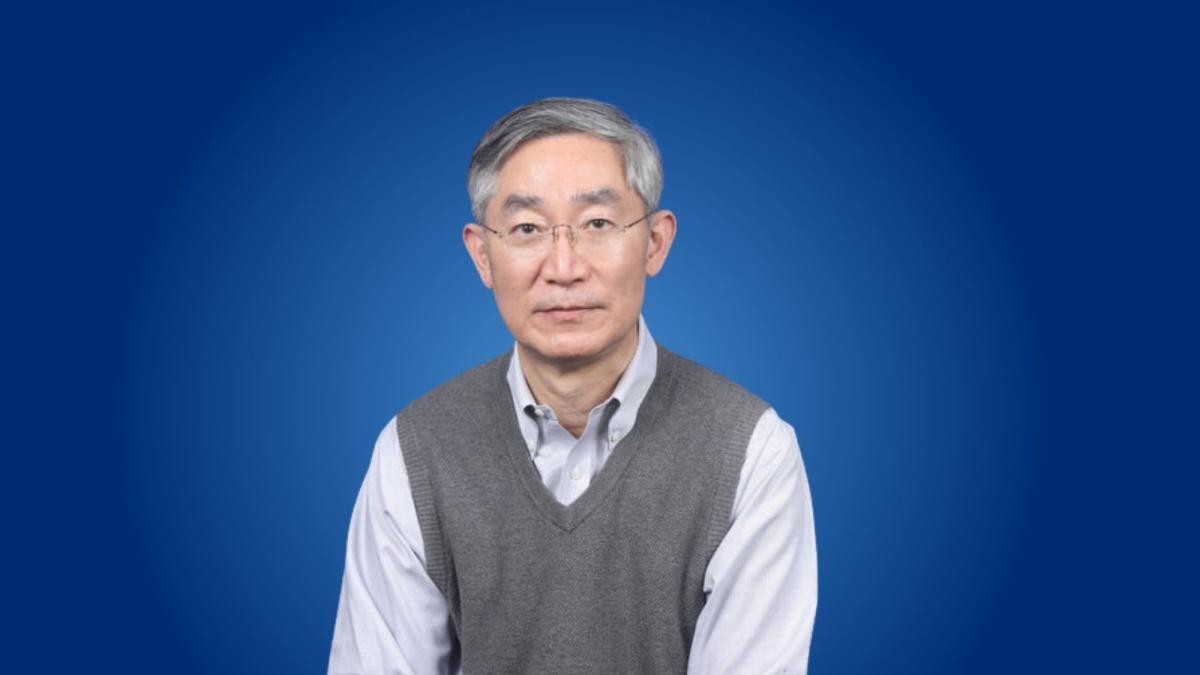
Aligning for Impact: Pace Professor Co-Authors Book on Institutional Collaboration
Seidenberg School of Computer Science and Information Systems Professor Namchul Shin has co-authored a new book published by Oxford University Press that offers a timely, forward-looking exploration of institutional collaboration in the 21st century.
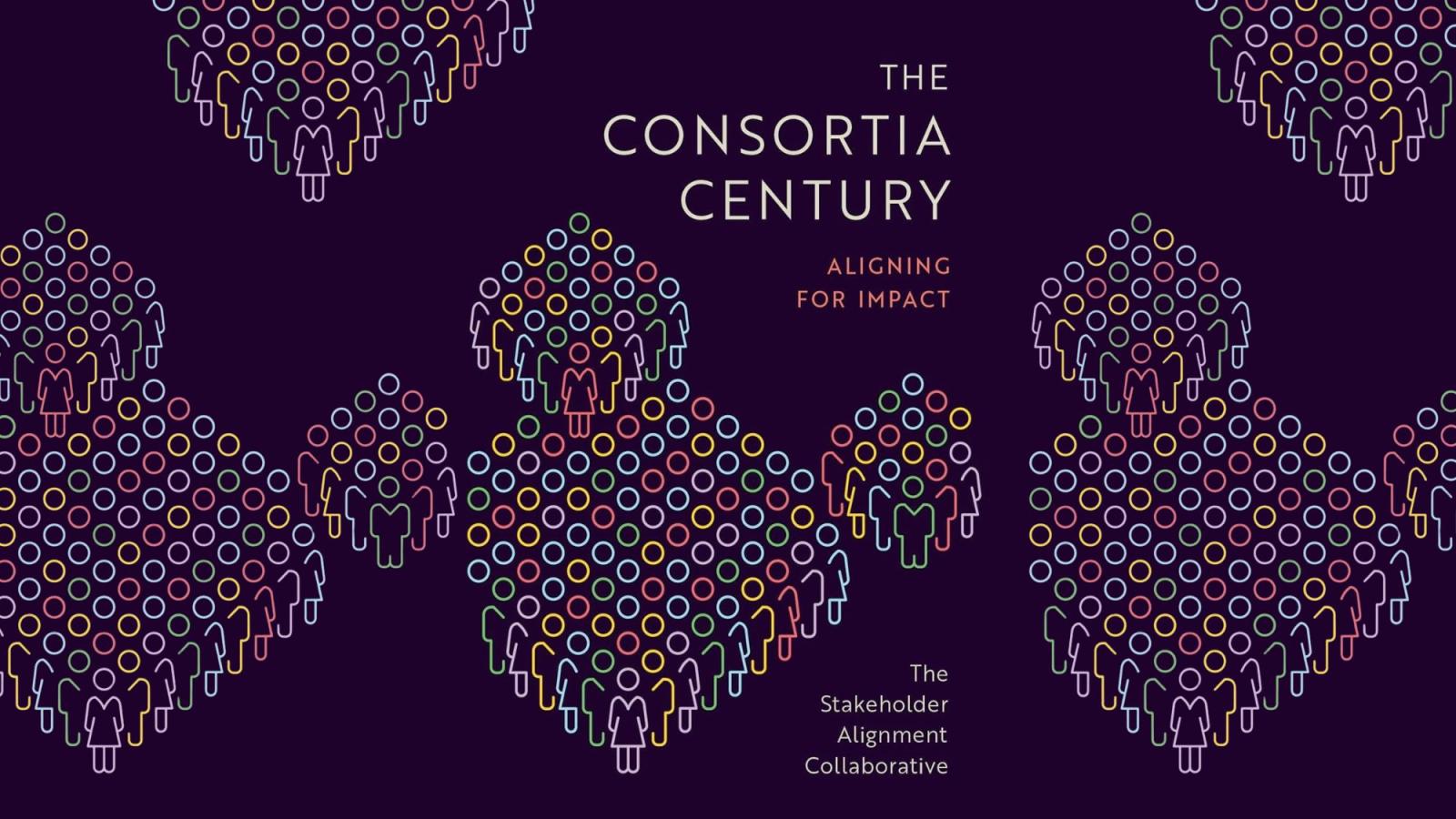
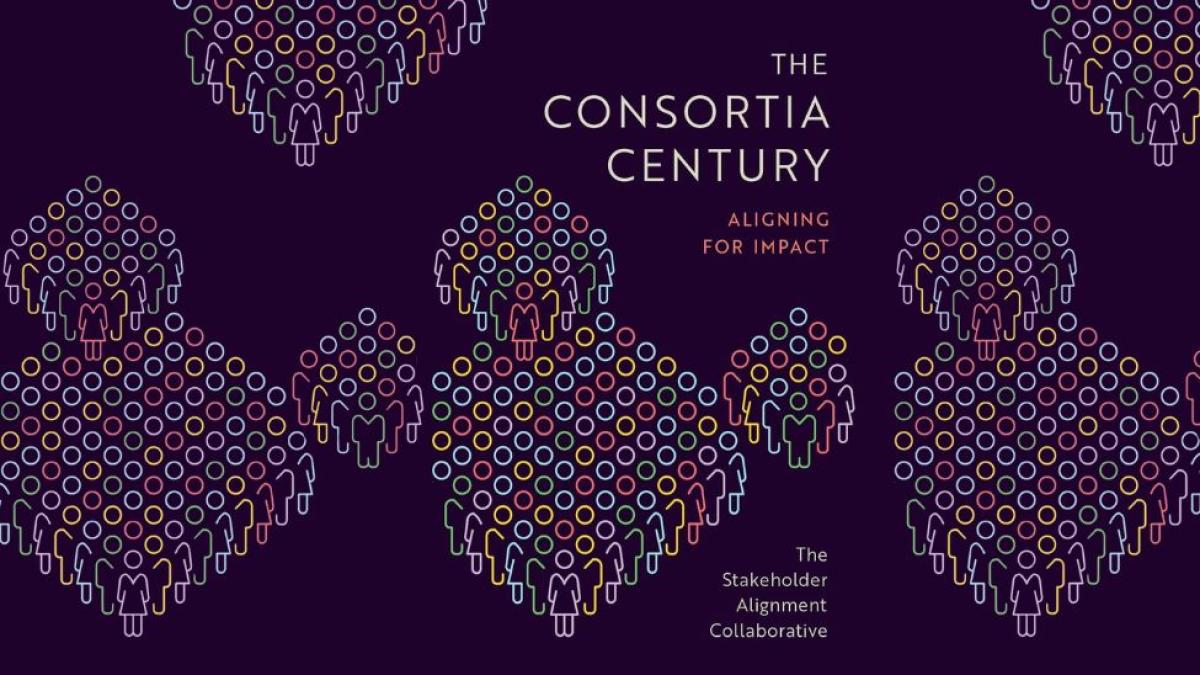
Seidenberg School of Computer Science and Information Systems Professor Namchul Shin has co-authored a new book published by Oxford University Press that offers a timely, forward-looking exploration of institutional collaboration in the 21st century.
The Consortia Century: Aligning for Impact, released in 2025, is the work of the Stakeholder Alignment Collaborative, a multidisciplinary group of 30 scholars, policymakers, and practitioners. Among them is Shin, Professor of Information Systems at Pace University’s Seidenberg school whose research and teaching focus on innovation, information systems, sustainability, and the organizational dynamics that shape technology-driven transformation.
Shin, his expertise in innovation, IT value, and environmental sustainability to the project. His recent research includes using large language models to assess biodiversity reporting in the coal mining industry, presented at conferences in Seoul, South Korea. This work exemplifies his commitment to leveraging technology for global sustainability efforts.

The book posits that consortia—multi-stakeholder alliances—will be the defining institutional form of the 21st century, capable of tackling issues too large for any single organization to solve alone. It offers real-world case studies and a framework for achieving lateral alignment across sectors, collective action beyond traditional top-down or bottom-up models. The authors made their point by using diverse case studies spanning biomedicine, social work, labor relations, video games, science, and higher education, among additional sectors, domains, and ecosystems.
With The Consortia Century, Shin and his co-authors provide both a conceptual foundation and practical guidance for fostering institutional collaboration, offering a roadmap for organizations seeking to align diverse stakeholders in pursuit of shared goals.
2025 Rankings Roundup
Pace is a university on the rise, riding a wave of forward momentum that is transforming the experiences of our students, setting new standards of excellence and innovation, and expanding our impact in communities across the globe. That success is earning national recognition—in rankings, in distinctions of excellence, and in the extraordinary achievements of our alumni across industries and disciplines.
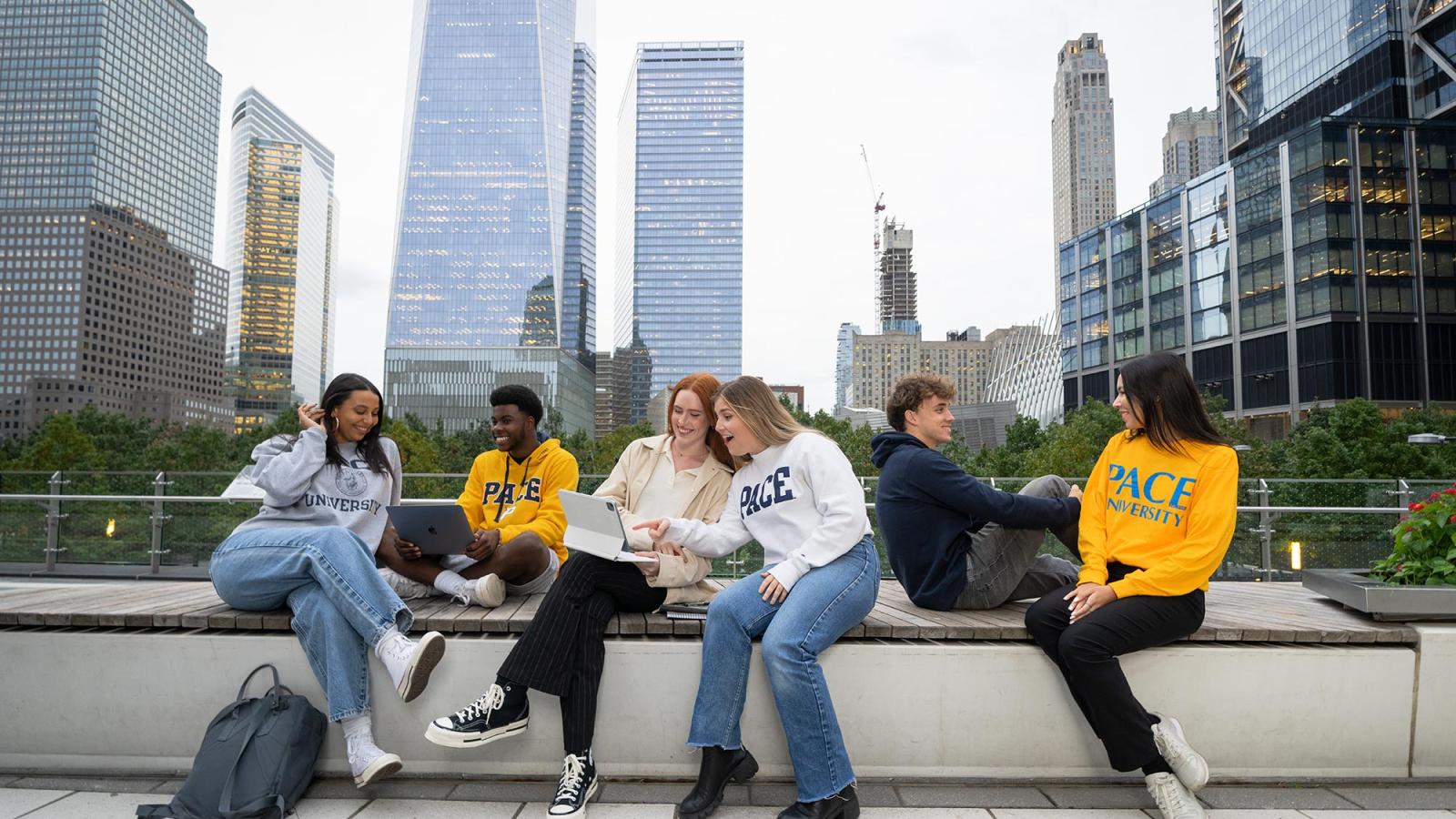
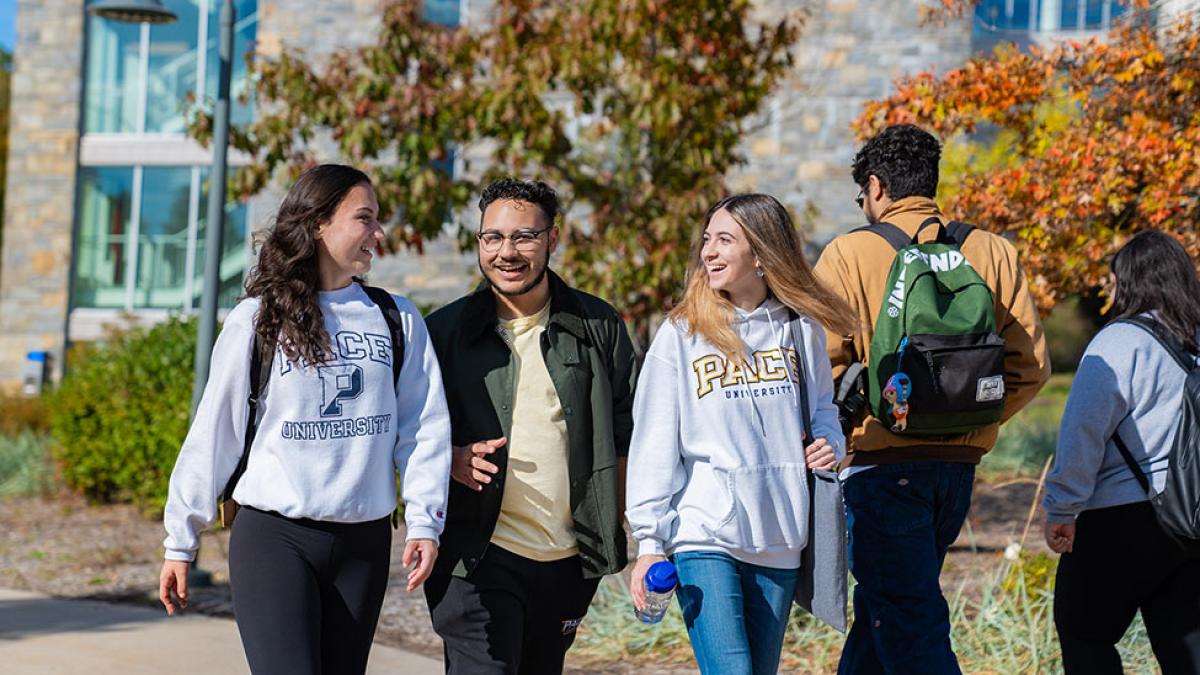
Numbers Don't Lie...
Pace is a university on the rise, riding a wave of forward momentum that is transforming the experiences of our students, setting new standards of excellence and innovation, and expanding our impact in communities across the globe.
That success is earning national recognition—in rankings, in distinctions of excellence, and in the extraordinary achievements of our alumni across industries and disciplines.
The proof is in the numbers. And those numbers tell the story of a university that is graduating the next generation of leaders and changemakers who are prepared to make a lasting difference in the world.
Career Outcomes
Pace is launching students into careers of impact and purpose.
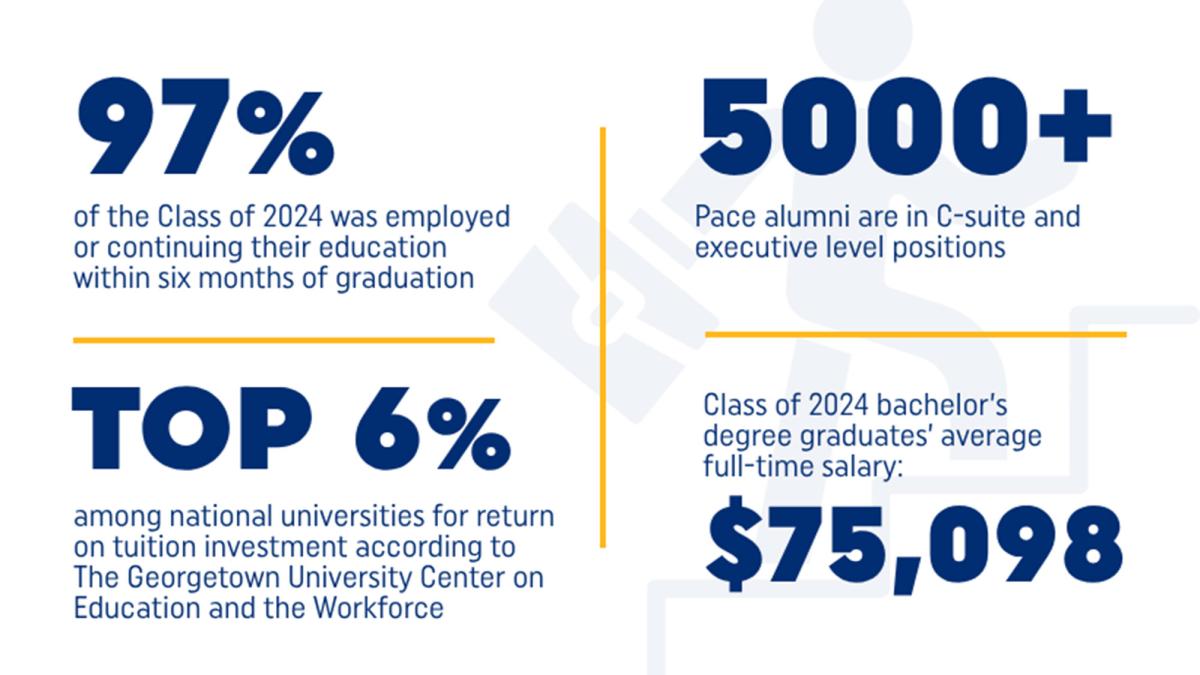
Program Excellence
Pace is building programs that blaze new trails.
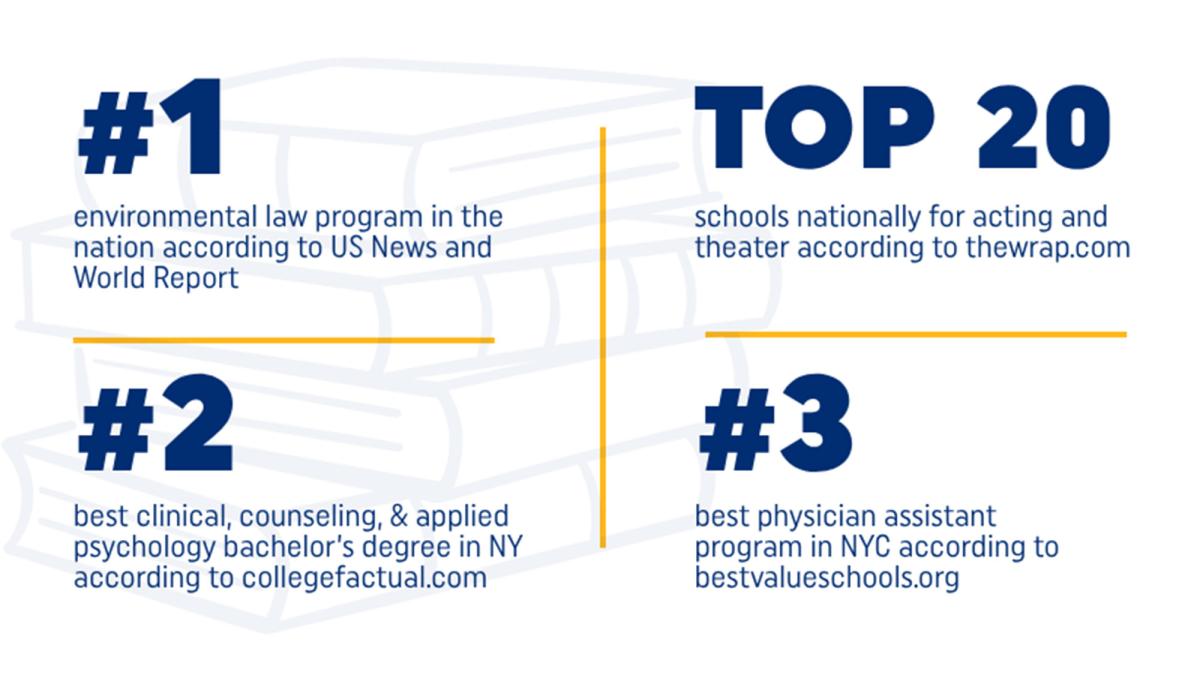
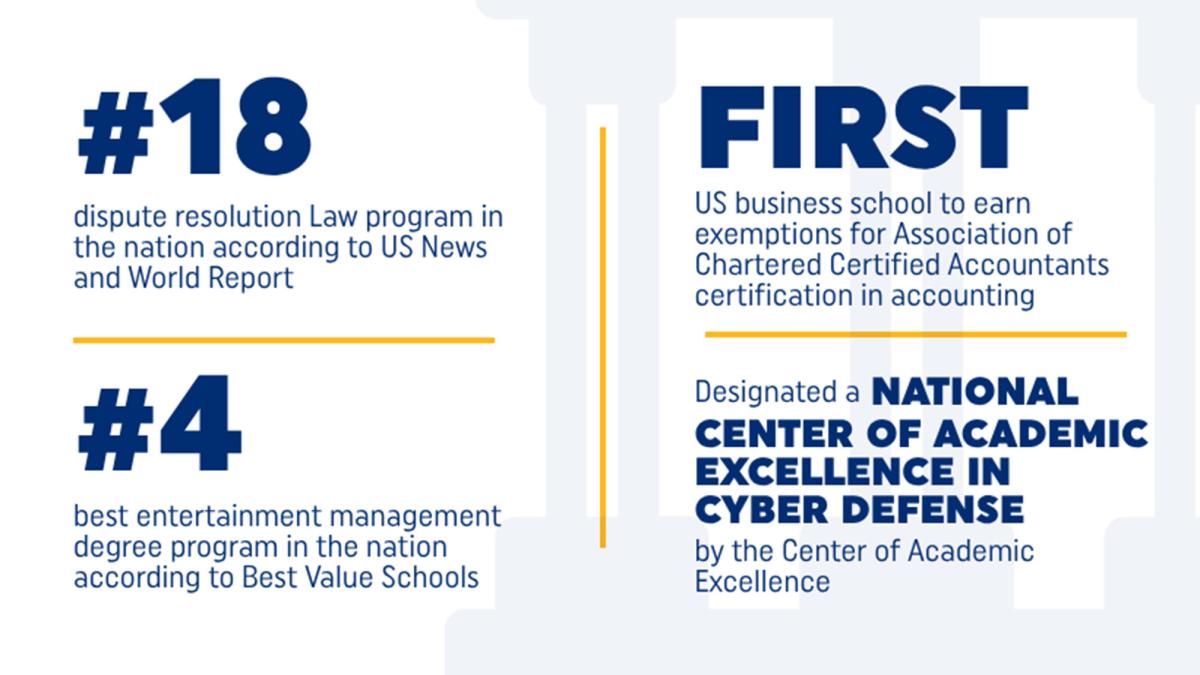
Accelerating Student Achievement
Pace is opening the doors of opportunity and achievement.
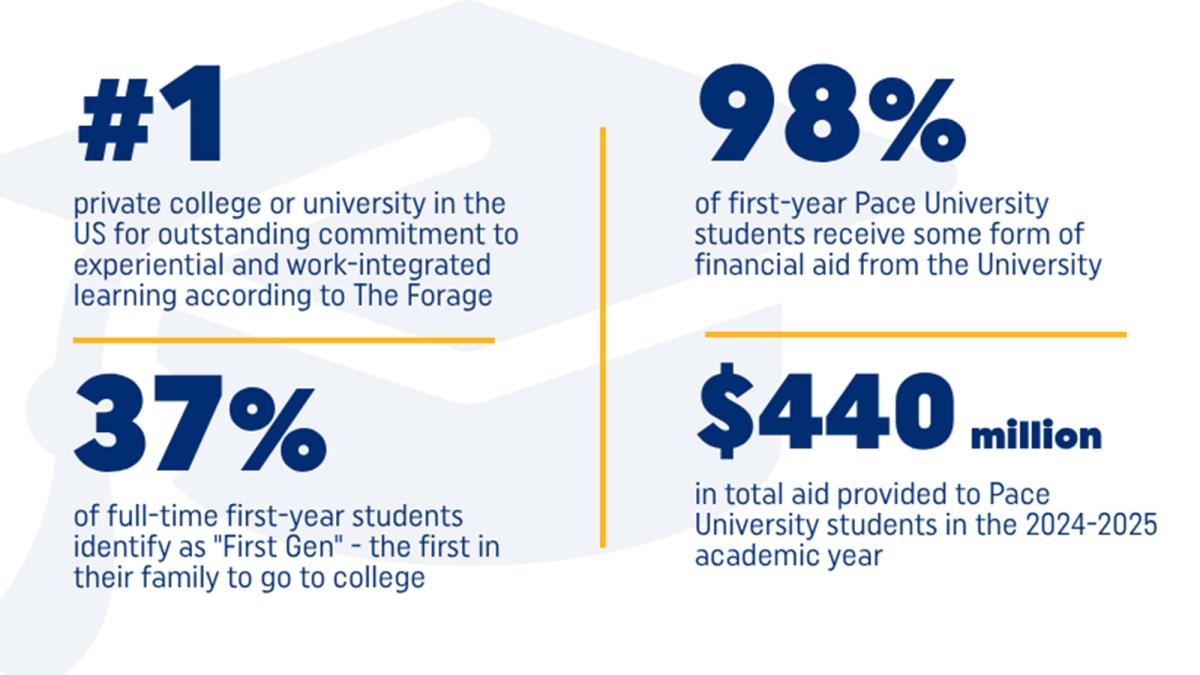
Maintaining Momentum
These numbers are just a glimpse of the countless ways that Pace is elevating excellence—in the achievements of our students and alumni, in the strength of our programs, and in the difference we make in our communities.
The work continues, and our commitment to the Pace mission is as strong as it's ever been.
There's so much more to share about the ways our University community is changing the world. For the latest on the extraordinary things happening at Pace, visit Pace Now.
Pace Haub Law Cohosts Roundtable Bringing Together Scholars to Explore Women, Gender, and Sexuality
On June 16, 2025, the Elisabeth Haub School of Law at Pace University and Albany Law School cohosted a Feminist Legal Studies Roundtable at the Pace University campus in Lower Manhattan.
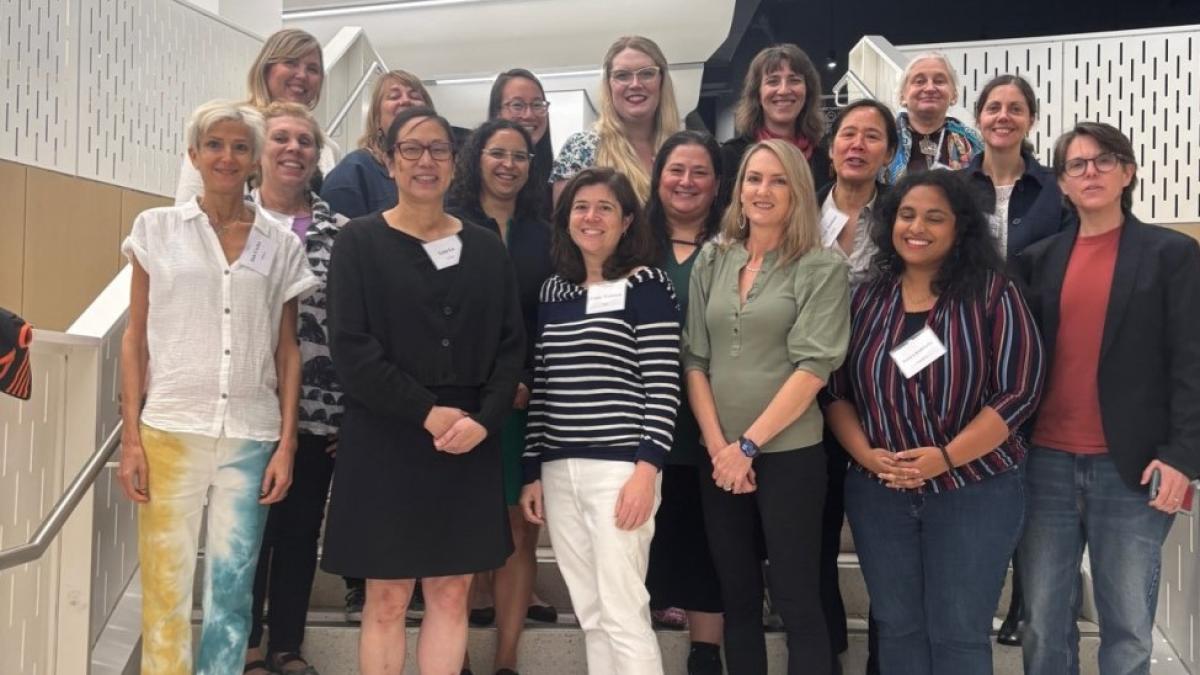
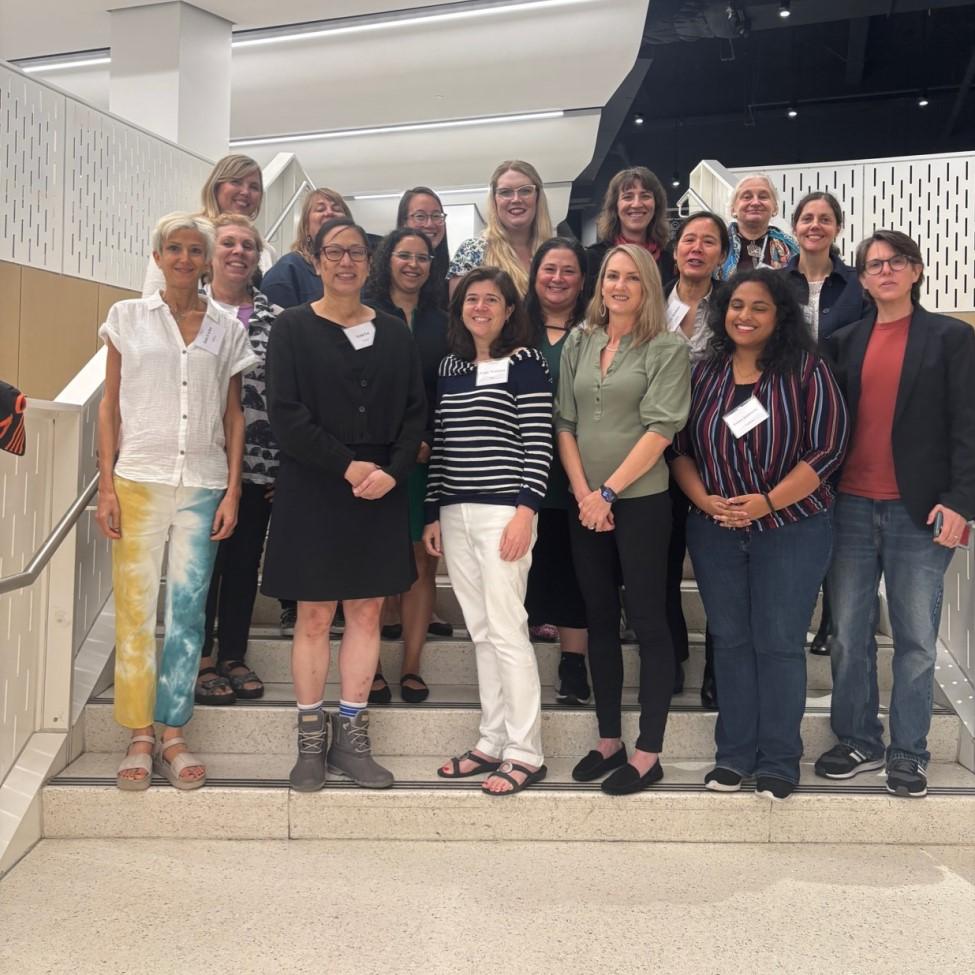
On June 16, 2025, the Elisabeth Haub School of Law at Pace University and Albany Law School cohosted a Feminist Legal Studies Roundtable at the Pace University campus in Lower Manhattan. Participants from Pace Haub Law included Professors Jessica Miles, Margot Pollans, and Emily Waldman. The event was convened by Professor Bridget Crawford and cosponsored by the US Feminist Judgments Project and the Law and Society Association’s International Research Collaborative on Feminist Judgments.
In this day-long program, nineteen faculty members from twelve schools presented works in progress that related in some way to women, gender & sexuality studies. During her opening remarks, Professor Crawford emphasized the value of shared scholarly inquiry. “Bringing together scholars committed to feminist legal analysis helps cultivate new insights and challenge traditional legal narratives,” she said. “In a time of rapid legal and political shifts—especially those impacting bodily autonomy, gender identity, and reproductive justice—convenings like this roundtable are more than collaborative opportunities; they are essential spaces for critical thinking, intellectual risk-taking, and mutual support. These gatherings help sharpen our tools, deepen our resolve, and move the field forward in ways that respond meaningfully to the world around us.”
Bringing together scholars committed to feminist legal analysis helps cultivate new insights and challenge traditional legal narratives.
Participating faculty members from other schools were: Noa Ben-Asher (St. John's), Cinnamon Carlarne (Albany), Mary Anne Case (Chicago), Dale Cecka (Albany), Liz Chen (Brooklyn), Tyler Rose Clemons(St. John's), Jenny-Brooke Condon (Seton Hall), Michelle Browning Coughlin (Northern Kentucky), Monica Iyer (Georgia State), Marcy Karin (Rutgers), Ramya Kudekallu (Cardozo), Lynn Lu (CUNY), Laura Rosenbury (Barnard), Cindy Soohoo (CUNY), and Carla Spivack (Albany).
The event was organized with the assistance of Pace Haub Law staff members Renee Brown-Cheng, Lauren Vaccaro, and Judy Jaeger.
Celebration and Impact: Spirit of Pace Awards 2025
At the 61st annual Spirit of Pace Awards dinner, held on June 12 at the American Museum of Natural History, more than 270 members of the extended Pace Community gathered in the iconic Irma and Paul Milstein Family Hall of Ocean Life to do just that: to make an extraordinary difference in the lives of our students while recognizing industry and alumni leaders who typify the values Pace holds most dear.


When the Pace Community comes together to support our students and celebrate our mission, we achieve extraordinary things for our University.
At the 61st annual Spirit of Pace Awards dinner, held on June 12 at the American Museum of Natural History, more than 270 members of the extended Pace Community gathered in the iconic Irma and Paul Milstein Family Hall of Ocean Life to do just that: to make an extraordinary difference in the lives of our students while recognizing industry and alumni leaders who typify the values Pace holds most dear.
Throughout the event, one message remained at the forefront: when it comes to building a brighter future for our students and their families, we all have an important role to play. And by the end of the evening, our community answered the call, raising $1 million in support of student scholarships and programs.
“This event is our chance to come together as one Pace Community—alumni, students, trustees, faculty, staff, and friends—and celebrate what makes Pace such a powerful place for learning and opportunity,” Pace University President Marvin Krislov said during his introductory remarks. “At Pace, we deliver education with purpose. Our students combine academic excellence with hands-on experience—and they succeed.”
Our four Spirit of Pace Awards honorees embody this commitment to excellence, exemplifying for our students—and for everyone at Pace—what it means to lead with innovation, vision, and steadfast belief in the importance of lifting others up.
This year’s Spirit of Pace Awards honorees were Lifetime Achievement Award-winner Michael Dowling, President and CEO, Northwell Health; Leaders in Management Award-winner Kristin Dolan, MS ’90, Chief Executive Officer, AMC Networks; Impact Award-winner Andreas C. Dracopoulos; Co-President, Stavros Niarchos Foundation (SNF); and Alumni of the Year Award-winner John Lyle ’66, philanthropist.

We were privileged to honor our exceptional 2025 honorees for their trailblazing career successes and their untiring philanthropic spirit. Thanks to their participation, and to everyone who attended and contributed to the event, the 2025 Spirit of Pace Awards was an unforgettable evening that will have a life-changing impact for Pace students today and in the years to come.
Highlights from the 2025 Spirit of Pace Awards
Alumni 2025 Awards Roundup
Each year, the Pace University Alumni Association presents awards to individuals who have made invaluable contributions to the University through their service, leadership, and dedication to the Pace mission.


Each year, the Pace University Alumni Association presents awards to individuals who have made invaluable contributions to the University through their service, leadership, and dedication to the Pace mission.
Learn more about the 2025 Pace University alumni award recipients, the indelible impact they have made on the Pace Community, and the ways you can help create powerful experiences for all Pace alumni.

Homer and Charles Pace Faculty Award
Homer and Charles Pace Faculty Award honors a faculty member nominated by Pace alumni who embodies our mission of Opportunitas, serving as an inspiring role model, motivating their students, and going above and beyond to support Pace student success. This year, the Homer and Charles Pace Faculty Award was presented to Associate Professor and Department Chair of Biology at the Dyson College of Arts and Sciences, Zafir Buraei. His work focuses on elucidating the molecular mechanisms of cardiovascular and neurological disease. He previously received Pace’s Outstanding Advisor Award in 2018.
Gold Alumni Service Award
Graduates of the Last Decade (GOLD) Committee Chair, Gabriella Ferrara '16, was honored at Reunion with the inaugural GOLD Alumni Service Award. Specifically for graduates of the last decade, this award recognizes alumni who have demonstrated exceptional service and commitment in the years immediately following their undergraduate education. The recipient embodies the spirit of Opportunitas by making meaningful contributions to the Pace Alumni Association and inspiring fellow alumni to do the same. Through her volunteer work with the Alumni Association, Gabriella has been instrumental in facilitating programming and connections amongst GOLD alumni, laying the foundation for a stronger Pace alumni community for years to come.
Watch Gabriella’s acceptance remarks!
Emerging Alumni Leader Award
At Pace’s 2025 Reunion, Harrison C. Davies ’13, ’15 became the first-ever recipient of the Emerging Alumni Leader Award. This brand-new award will be presented annually and honors an alumni volunteer who has rekindled their commitment to the University through exemplary leadership and alumni advocacy. It recognizes those who have demonstrated exceptional initiative in advancing Pace’s mission of Opportunitas and supporting the Pace Alumni Association. As Chair of the Dyson College of Arts and Sciences and School of Education Alumni Association Committee, Harrison has made strides to strengthen ties across a large and exceptionally diverse alumni group, creating pathways to innovative new highly engaging programs and promote cross-disciplinary collaboration.
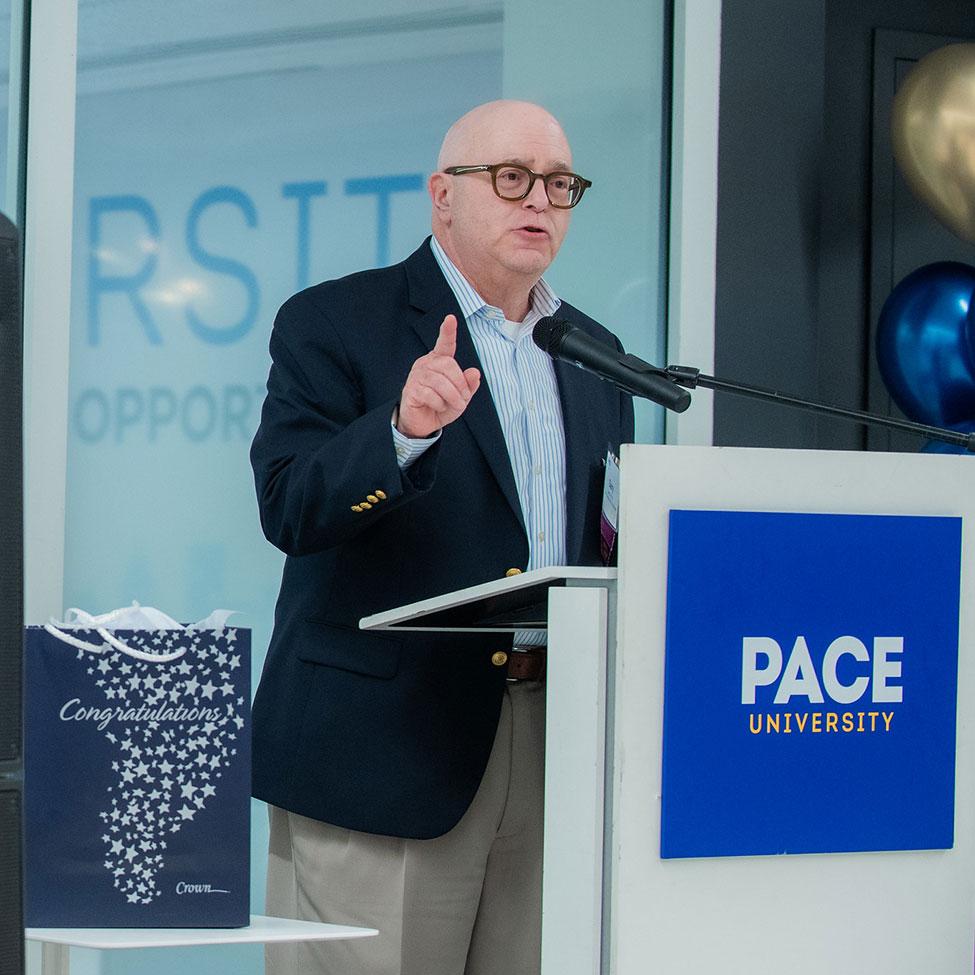
Harry D. Mayo III '61, '78 Distinguished Service Award
Former Vice President of Pace University Development and Alumni Relations Gary Laermer ’80 was presented with Harry D. Mayo III ’61, ’78 Distinguished Service Award at Reunion 2025. Named in honor of its committed and inspirational first recipient, the Harry D. Mayo III ’61, ’78 Distinguished Service Award is presented annually to a Pace graduate whose consistent volunteer service has aided in advancing the success of Pace’s mission of Opportunitas and the Pace Alumni Association. As VP, Gary spearheaded the transformation of Pace’s philanthropic and charitable giving programs, launching the historic $300 million Campaign for Pace University. He retired from his role at Pace in January 2025, leaving the University stronger and better positioned for future success, and having empowered countless Pace students to achieve their full potential.
Alumni of the Year Award
John Lyle ’66, Philanthropist, was honored with Pace’s Alumni of the Year Award at the June 2025 Spirit of Pace Awards ceremony. With more than 40 years of generous philanthropic support of the Pace mission, John has distinguished himself as among the most dedicated and impactful individual benefactors in the history of the University. As a recipient of the 2025 Alumni of the Year Award, John demonstrates the extraordinary things that can be achieved through a spirit of philanthropy and an enduring belief in the power of education to uplift and transform lives
Ways to Get Involved
- Alumni Association: The Pace University Alumni Association creates a space for alumni to engage with each other, current students, and the University to enrich the alumni experience.
- Affinity Groups: Through a Pace Affinity Group, you can connect with alumni, students, faculty, and staff members who enjoy similar passions, professions, and personal interests.
- Graduates of the Last Decade (GOLD): GOLD, is a network for Pace University undergraduate alumni of the last ten years. Giving alumni the opportunity to network with each other, both personally and professionally, connect with current students, and foster a lifelong relationship with Pace through events, volunteer opportunities, and giving.
- Mentor: Join Setter Connect and become the spark in a student's life as an alumni mentor and help guide them as they embark on their careers.
Reunion 2025 Recap
One Pace Plaza was brimming with celebration and cheer on June 5, 2025, as almost 200 Pace alumni returned to the New York City Campus to reconnect with old friends and classmates, reflect on shared histories and experiences, and toast the continued strength of the Pace Community.
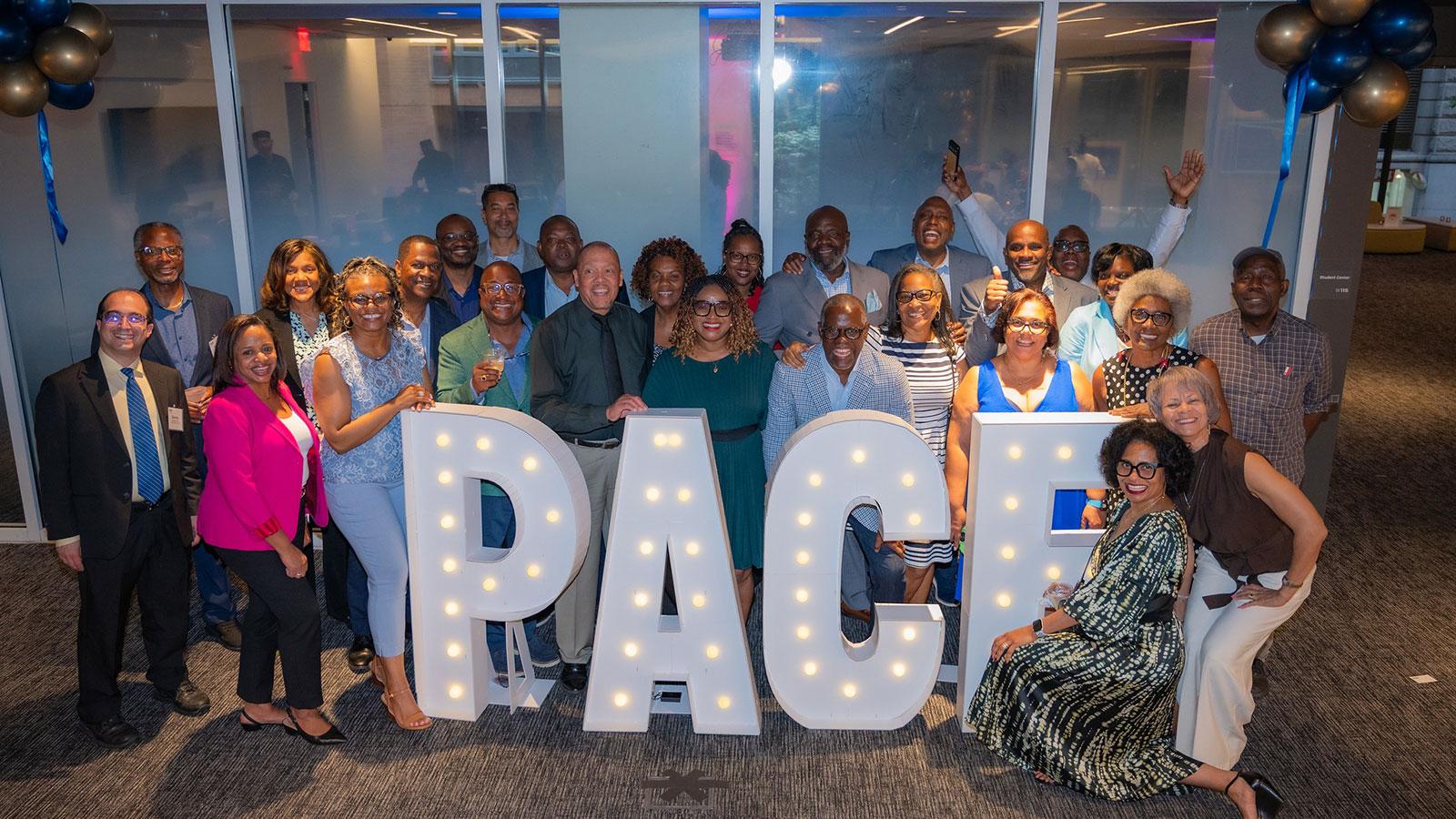
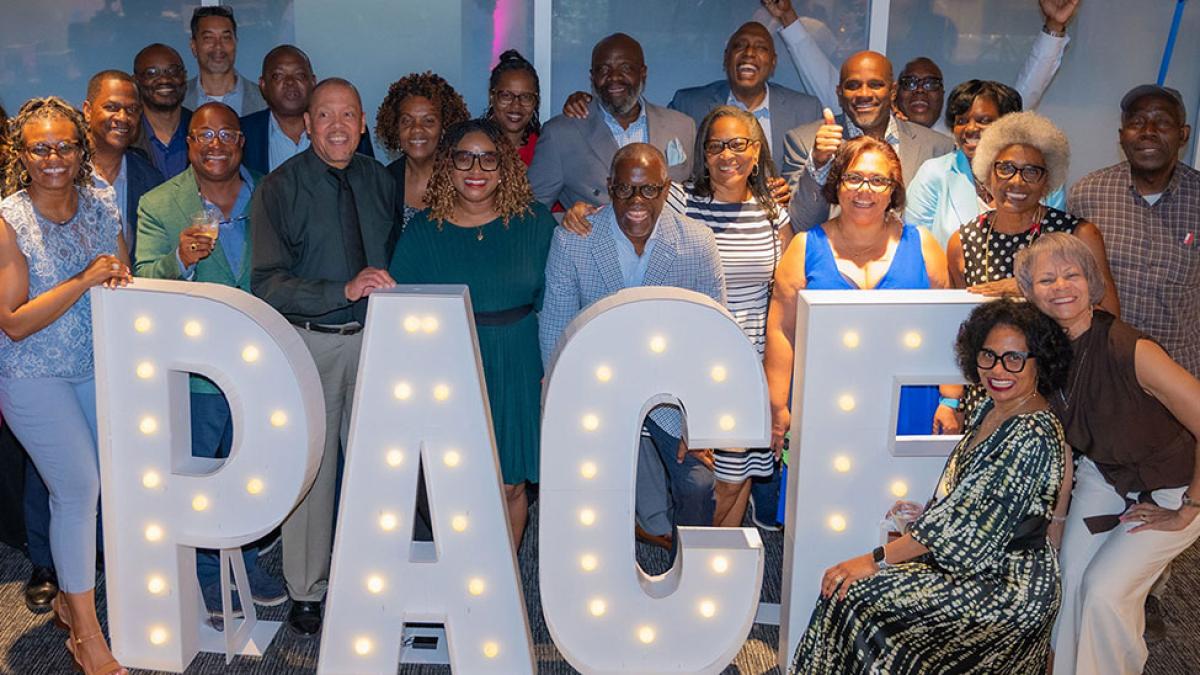
One Pace Plaza was brimming with celebration and cheer on June 5, 2025, as almost 200 Pace alumni returned to the New York City Campus to reconnect with old friends and classmates, reflect on shared histories and experiences, and toast the continued strength of the Pace Community.
This year, we recognized those milestone reunions ending in 5s and 0s, Pace’s thriving Alumni Affinity Groups, the 40th anniversary of the MS in Publishing Program, our rich community of Caribbean alumni, and the 2025 recipient of the Harry D. Mayo III ’61 ’78 Distinguished Service Award.
Additionally, our community came together during the event to celebrate the inaugural recipients of the Emerging Alumni Leader Award and the GOLD Alumni Service Award. The inaugural Emerging Alumni Leader Award was conferred to Harrison C. Davies ’13 in recognition of his exceptional leadership and initiative in advancing Pace’s mission of Opportunitas and supporting the Pace Alumni Association. The GOLD Alumni Service Award was conferred to Gabriella Ferrara ’16 in recognition of her remarkable service, commitment, and contributions to the Pace Alumni Association in the years after her graduation and her outstanding work inspiring fellow recent alumni to do deepen their involvement with the University.
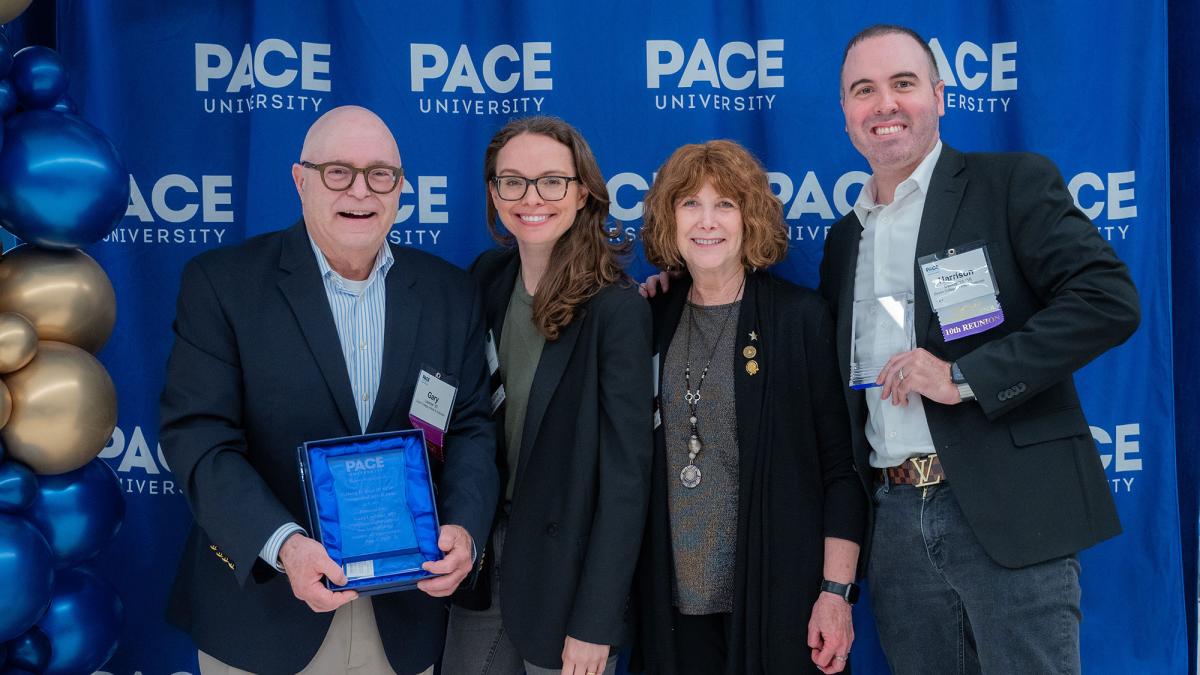
Harry D. Mayo III ’61 ’78 Distinguished Service Award
Congratulations to the 2024 Harry D. Mayo III ’61 ’78 Distinguished Service Award honoree, Gary Laermer '80. Gary served as Pace University’s vice president of Development and Alumni Relations from 2018 until December 2024. In that time, and under the leadership of Pace President Marvin Krislov and following approval by the Pace Board of Trustees, Gary and the Pace development team launched the historic $300 million Campaign for Pace University. This campaign marked an extraordinary period of success, with Gary and the development professionals setting multiple fundraising records and bringing the campaign’s ambitious goals well within reach.

Gary’s tenure was also marked by the establishment of the first collective Pace University Alumni Association, a community-building initiative that deepened alumni engagement and expanded volunteer opportunities. Amid the challenges of the COVID-19 pandemic, Gary helped lead a University-wide response that secured record-breaking contributions to emergency student support funds and launched initiatives such as the Community Impact Internship program, which places Pace students in paid internships with community nonprofits.
Above all, Gary’s leadership was defined by his unwavering commitment to community, student success, and the University’s mission of Opportunitas. During his tenure, the Office of Development and Alumni Relations raised more than $140 million to advance the University, including over $40 million in scholarship support—expanding access to a Pace education and reinforcing the University’s status as a leader in social mobility.
Reunion Highlights
Honoring Trailblazing Pace Alumni
During the 61st annual Spirit of Pace Awards dinner held on June 12 at the American Museum of Natural History in New York City, Pace University honored two outstanding alumni leaders who, through their steadfast generosity and trailblazing industry leadership, have translated the lessons of their Pace experiences into lifetimes of philanthropy, innovation, and impact.
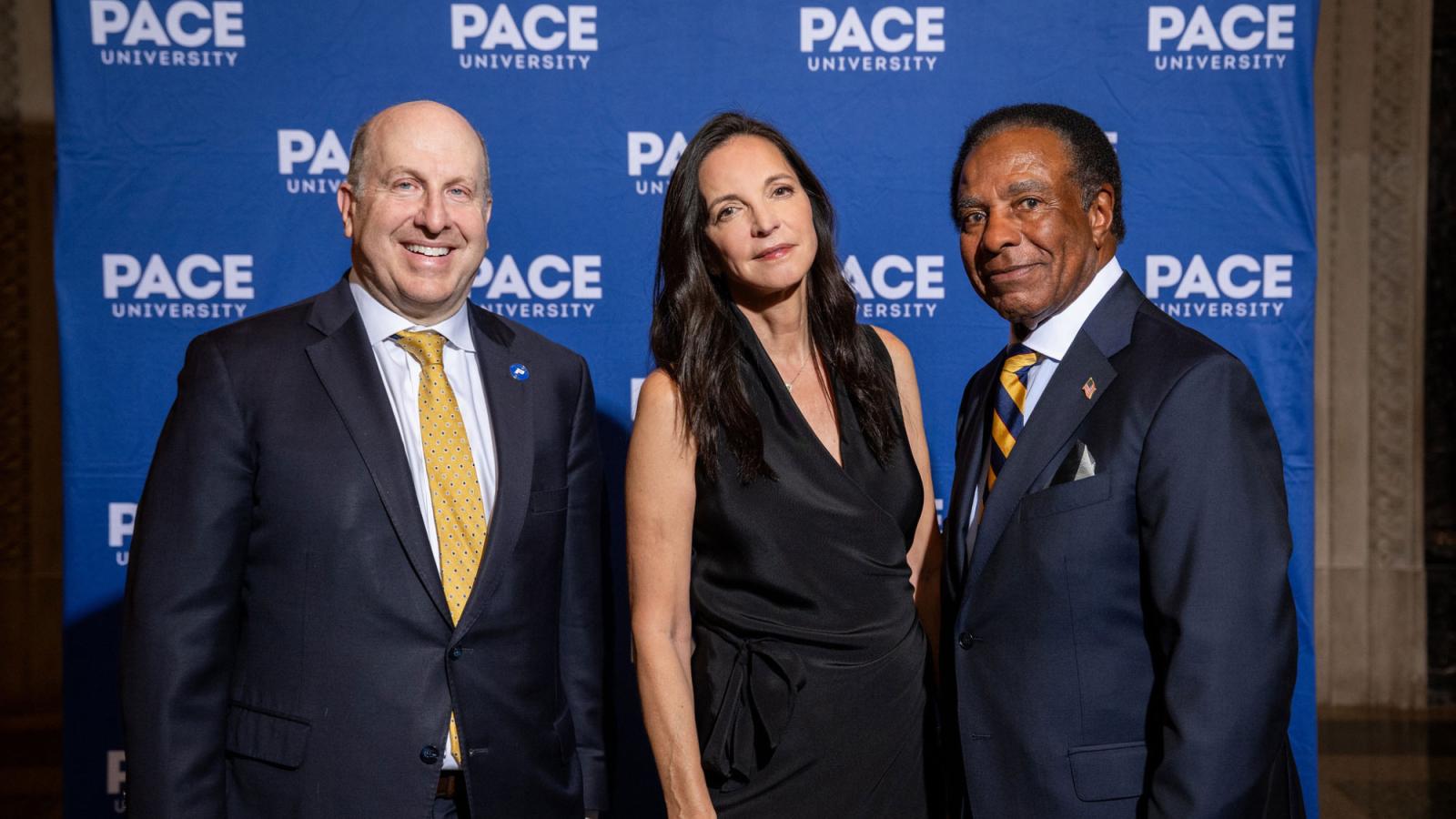
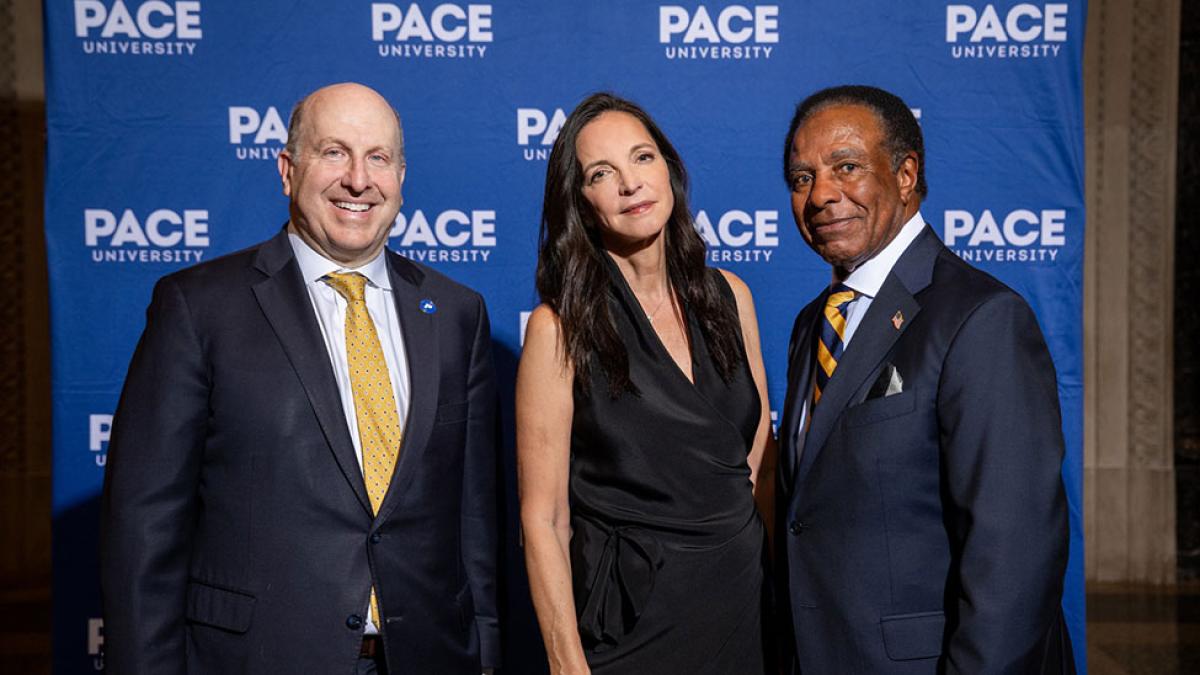
During the 61st annual Spirit of Pace Awards dinner held on June 12 at the American Museum of Natural History in New York City, Pace University honored two outstanding alumni leaders who, through their steadfast generosity and trailblazing industry leadership, have translated the lessons of their Pace experiences into lifetimes of philanthropy, innovation, and impact.
Kristin A. Dolan, MS '90, chief executive officer at AMC Networks, and John Lyle ’66, philanthropist, were two of four outstanding honorees celebrated during this year’s Spirit of Pace Awards ceremony—the University’s signature annual fundraiser for student scholarship and program support. As alumni, Ms. Dolan and Mr. Lyle’s participation was especially meaningful, underlining the wide-ranging successes of Pace graduates across fields and industries and the ways those success can be powerfully channeled toward transformative support of the University, our mission, and the students whose inexhaustible energy and ambition bring that mission to life.
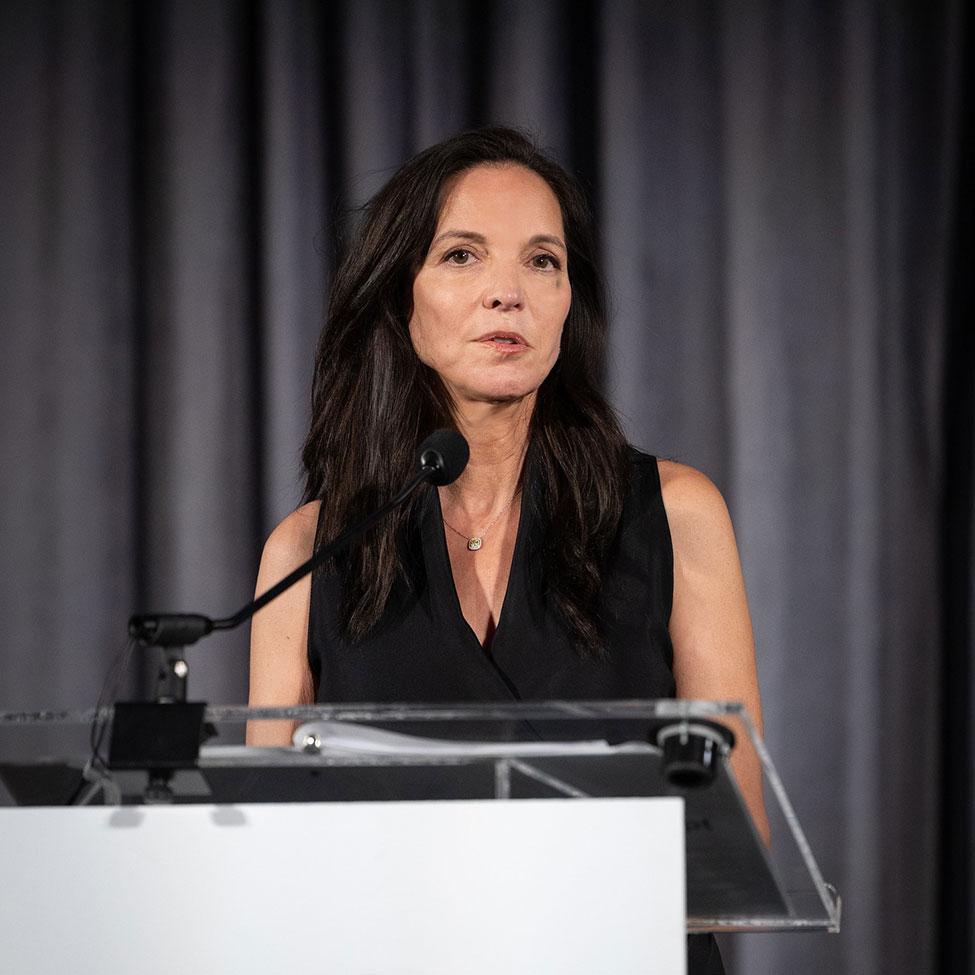
Ms. Dolan, who graduated from Pace with a master’s in publishing, was honored by Pace University with the 2025 Leaders in Management award, a recognition of industry pioneers whose achievements in business and service have enhanced the civic and cultural tapestries of communities in New York City and across the country. During her acceptance remarks, she discussed the vital role Pace played as a launchpad for her remarkable career success.
“Before coming to Pace, I graduated from SUNY Albany with a BA in English and a minor in business,” she said. “My goal after graduation was to find a career that combined my love of literature with something that could actually generate income, so I was thrilled to discover that Pace had launched a Master of Science program in publishing, which seemed like a great next step in my academic journey. The access Pace provided during my time there led to a full-time role in marketing at Rainbow Media following graduation—the first step on the path to where I am today.”
As CEO of AMC Networks, a global entertainment company and home to many of the greatest stories and characters in the history of TV and film, Ms. Dolan oversees a portfolio of distinct and award-winning targeted streaming services, cable networks, and film distribution labels; AMC Studios, the company’s in-house studio, production, and distribution operation; and AMC Networks International, its international programming business.
In a previous role as COO of Cablevision Media, Ms. Dolan as a key member of the leadership team that oversaw Cablevision’s 2016 sale to Altice USA for $17.7B, the highest revenue multiple in the history of telecom. Today, she is a member of a member of the Board of Directors for The Internet & Television Association, The Paley Center for Media, The Syndeo Institute at The Cable Center, Sphere Entertainment, and The Wendy’s Company (in addition to serving on Wendy’s Audit, Nominating and Governance and Technology Committees). She also serves on the President’s Councils for both Pace and the University of Albany.
“I’ve always believed that a liberal arts education provides so much value to aspiring leaders in any field,” she said, “and I’m proud to be an alumna of a well-respected university like Pace, which takes such pride in their curriculum and the resulting success of their graduates.”
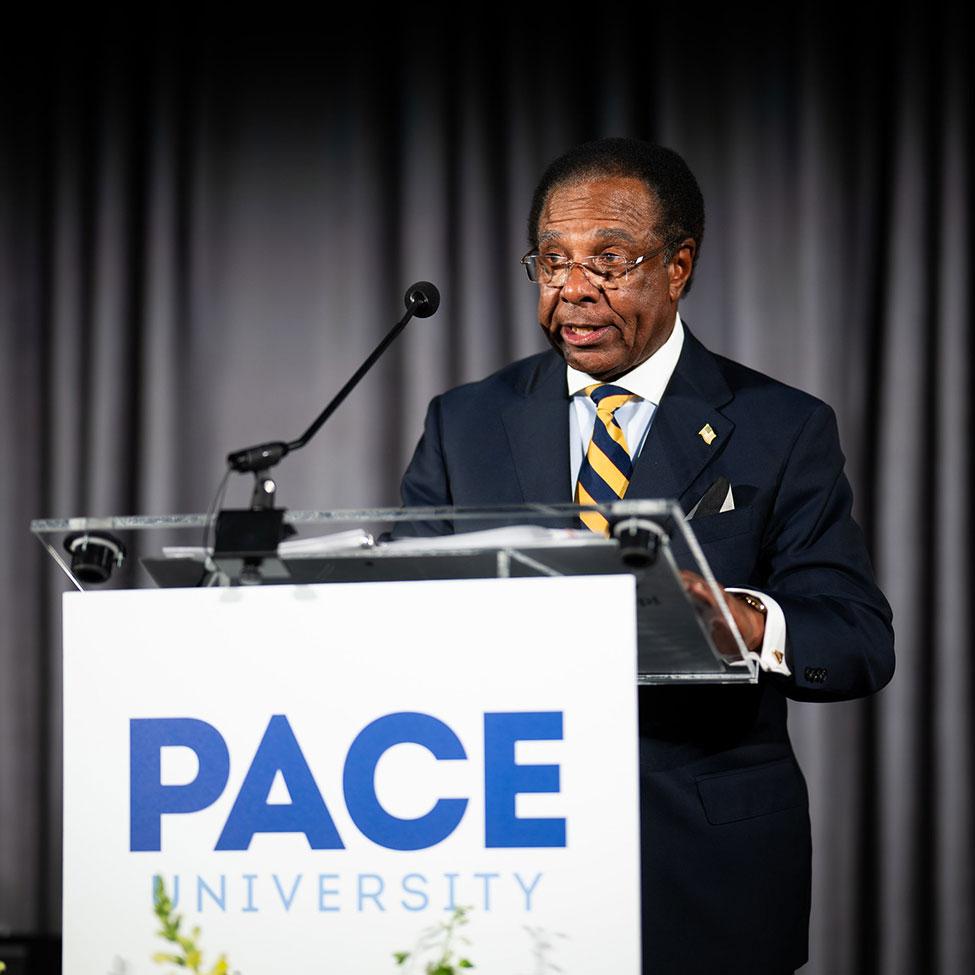
Mr. Lyle, who graduated from Pace with a BBA in marketing, received the 2025 Alumni of the Year award, recognizing his commitment to excellence, his profound belief in the importance of uplifting others, and his extraordinary record of philanthropic investment.
Over more than 40 years of generous support of the Pace mission, Mr. Lyle has distinguished himself as among the most dedicated and impactful individual benefactors in the history of the University.
A native of Jamaica, Mr. Lyle enrolled at Pace in 1963 on the recommendation of friends in his adopted home of New York who advised him of the University’s exceptional business programs and strong track record of career placement. While in school, Mr. Lyle drew inspiration from the visionary leadership of legendary Pace President Dr. Edward J. Mortola, as well as key professors such as Dr. Seymour Baranoff and Dr. Thomas Edward Sayles. According to Mr. Lyle, it was Pace’s combined focus on business principles and a broad liberal arts education that prepared him to lead a life of leadership, professional excellence, and intellectual curiosity.
“This great institution has been equipping and preparing students to take their place in society for almost 120 years,” Mr. Lyle said during his acceptance remarks. “The students are given the fundamentals and essentials so they can be successful.”
Mr. Lyle began his long and successful career with the United Parcel Service while still a student at Pace. He later went on to rise through the UPS management training program, where he gained experience in operations, industrial engineering, human resources, and more. By the time of his retirement from UPS in 1996, Mr. Lyle had participated in business development in the western United States, Canada, and the Pacific Rim.
Mr. Lyle’s many years of generosity to Pace have been instrumental in strengthening the University’s rigorous academic and co-curricular programs, advancing critical sources of emergency student support, and expanding life-changing scholarship opportunities for the next generation of hard-working students. As a proud Pace University alumnus, Mr. Lyle demonstrates the extraordinary things that can be achieved through a spirit of philanthropy and an enduring belief in the power of education to uplift and transform lives.
“I would submit that Pace University has given great leadership, and it behooves us as alumni to exert ourselves in supporting the University,” he said.
Arthur Grabiner '50
Pace Reunion welcomed a very special guest: Arthur Grabiner ’50, who attended the annual Golden Graduates Luncheon to celebrate his 75th anniversary reunion.
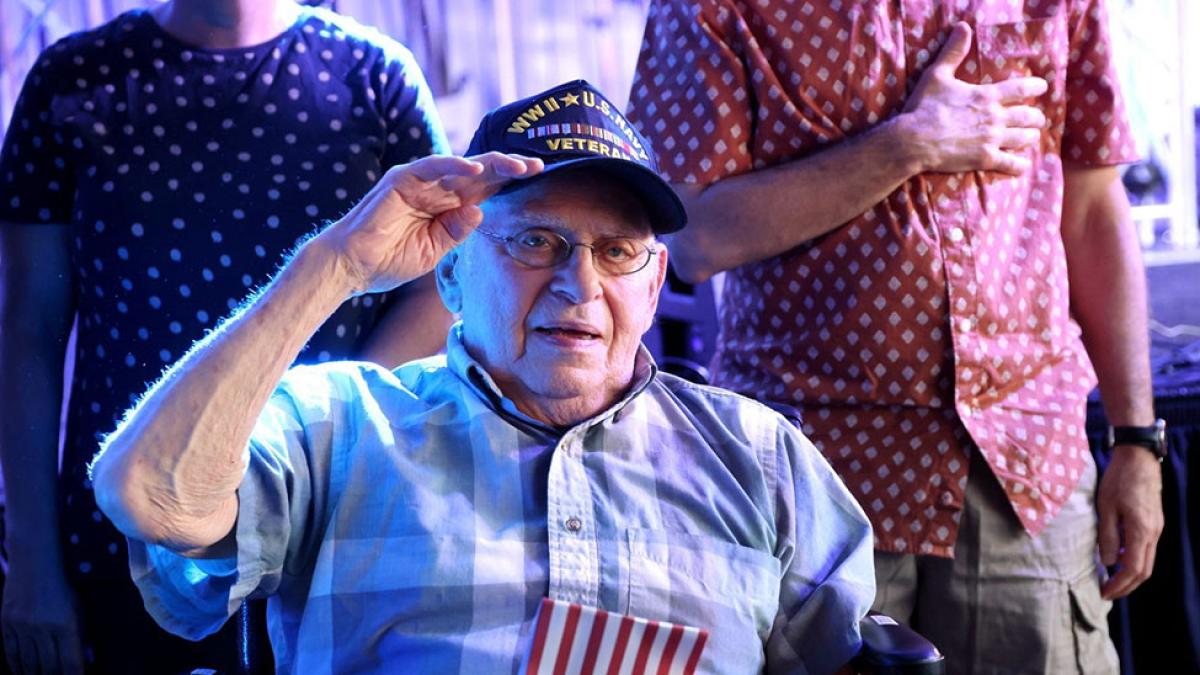
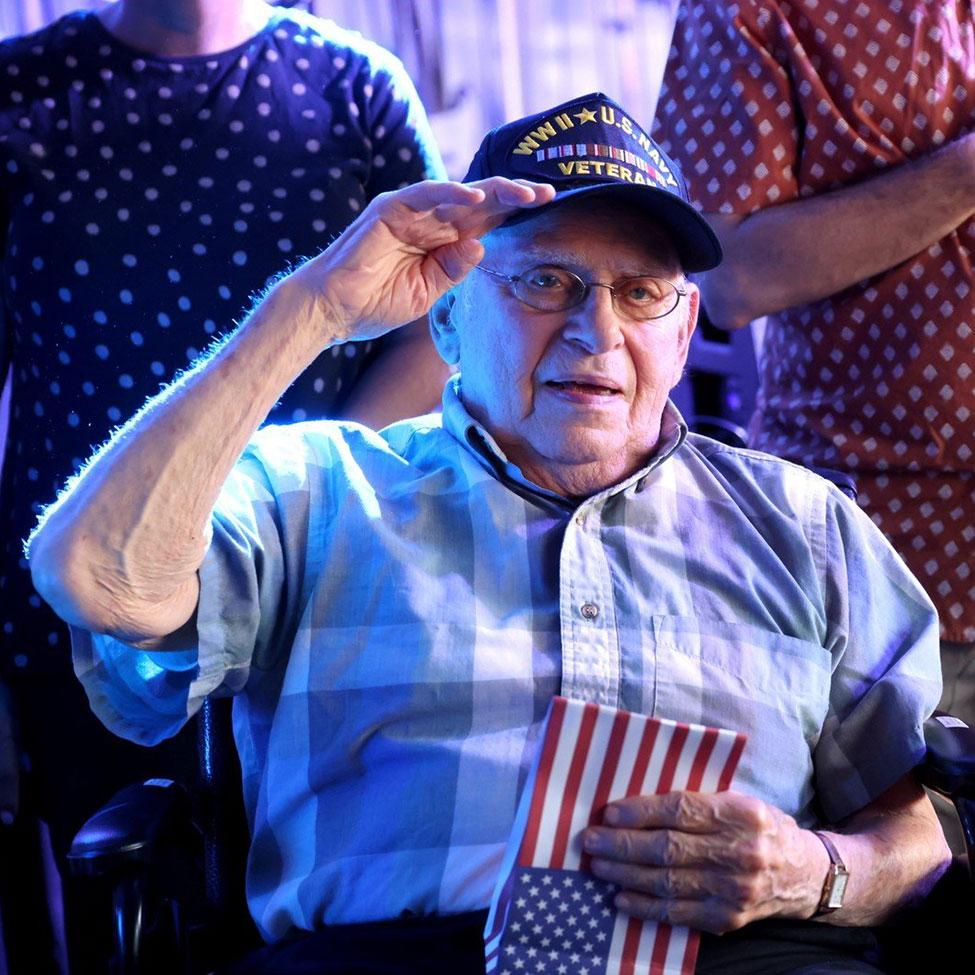
This year, Pace Reunion welcomed a very special guest: Arthur Grabiner ’50, who attended the annual Golden Graduates Luncheon to celebrate his 75th anniversary reunion.
The extraordinary milestone is one of several for Arthur in 2025. As a decorated veteran of the Pacific Theater of World War II, Arthur celebrated 79 years since his Honorable Discharge from the United States Navy in May. In the preceding month of April, he was awarded the US Congressional Gold Medal, the highest civilian honor bestowed by Congress, for his exemplary patriotism and contribution to American history. At an age of “99-years-young,” Arthur looks forward to his 100th birthday in December.
For Arthur, age is truly but a number. He continues to remain active and engaged, routinely making public appearances—including as an honored guest of this year’s Pace commencement ceremonies. Arthur also frequently makes time to speak at a variety of historical and educational events, demonstrating his tireless sense of duty to sharing experiences and insights from his service with younger people. In recognition of Arthur's valiant World War II US Navy service and dedication to educating and inspiring younger generations, he was inducted into the New York State Senate Veterans' Hall of Fame during a 2019 ceremony in the New York State Capitol in Albany.
Arthur’s story reminds us of the sacrifices made by so many to ensure a better future for us all, the capacity we each possess to inspire and stir the hearts of others, and the profound, lasting impact of a Pace education. Arthur graciously shared some reflections with us which we publish below, in his own words.
Q&A
As you celebrate your milestone 75th reunion, how do you reflect on your time at Pace University—then Pace College?
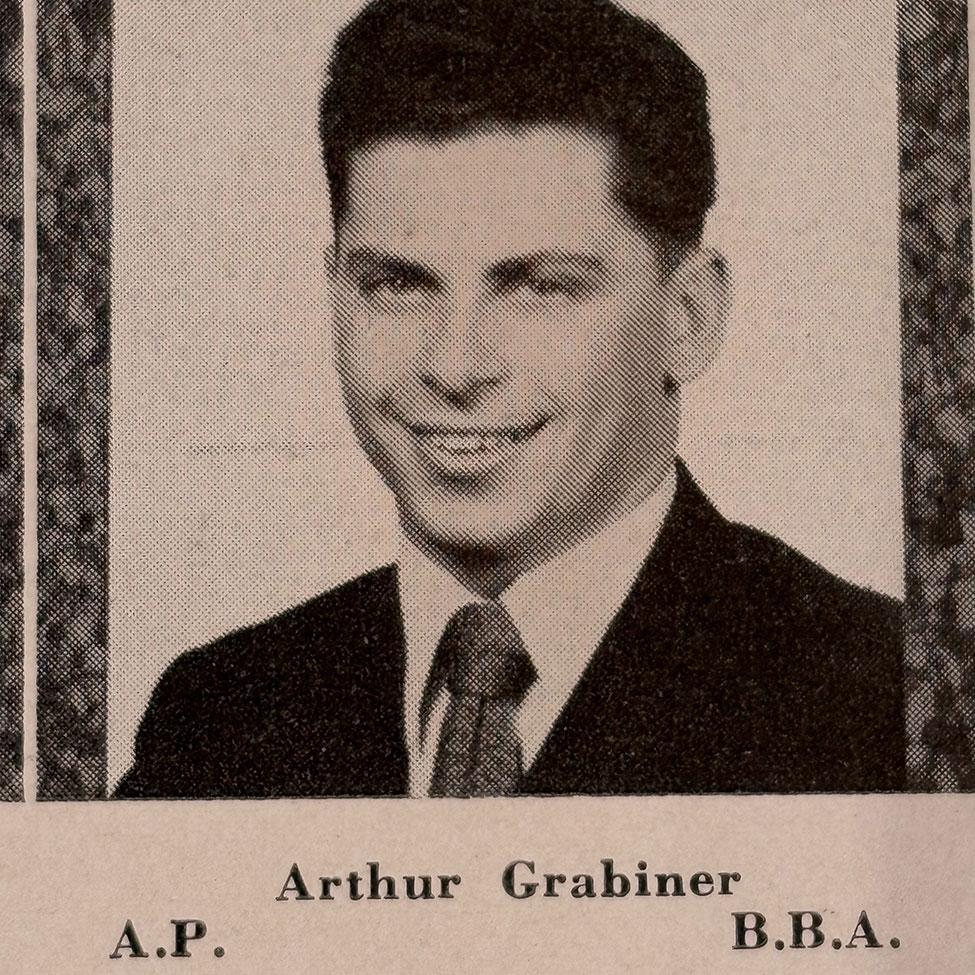
Following the Allied victory in World War II (WWII) and the Allied occupation of Japan, I received my Honorable Discharge from the US Navy in May of 1946... 79 years ago. Anxious to further my education, I enrolled in what was then known as Pace Institute, under the GI Bill, in February of 1947.
I attended classes inside the Transportation Building at 225 Broadway in Lower Manhattan. Interestingly, the Wikipedia entry for "Transportation Building (Manhattan)" includes the following: "One of the first tenants of the Transportation Building was the Pace Institute—the predecessor of the school that is now Pace University—which moved into the building in 1927 and remained until the 1950s."
All of my fellow classmates at Pace, like me, were returning WWII veterans. Some of our faculty, too, were WWII veterans. Given that 225 Broadway was an office building, Pace students were obligated to wear a dress shirt and tie to class. Upon exiting the subway in Lower Manhattan, after traveling from my family's home in the Bronx, I put on a bowtie before entering 225 Broadway. Following class and immediately after exiting the building, I removed my bowtie.
While I was studying at Pace, the institute was elevated to college status, and became known as Pace College. I attended classes year-round, earning a Bachelor of Business Administration in three years. As a graduating member of the Pace College Class of 1950, our commencement took place inside the Waldorf-Astoria Hotel. For my yearbook photo in "The Legend 1950," I upgraded from a bowtie to a necktie.
What inspires you to remain a dedicated and involved member of the Pace alumni community?
My education at Pace gave me the foundation to cultivate a productive business career, and to raise and provide for my family while playing my small role in helping propel the United States of America to then-unparalleled heights of prosperity. For half a century, I enjoyed a flourishing career and thriving practice as a Certified Public Accountant and principal of a midtown Manhattan public accounting firm. At Pace, I was the first member of my family to earn a college degree. 75 years later, this past May 2025, I enthusiastically attended Pace University's commencement while wearing a cap, gown, and military cord (US Navy) inside Louis Armstrong Stadium at the USTA Billie Jean King National Tennis Center.
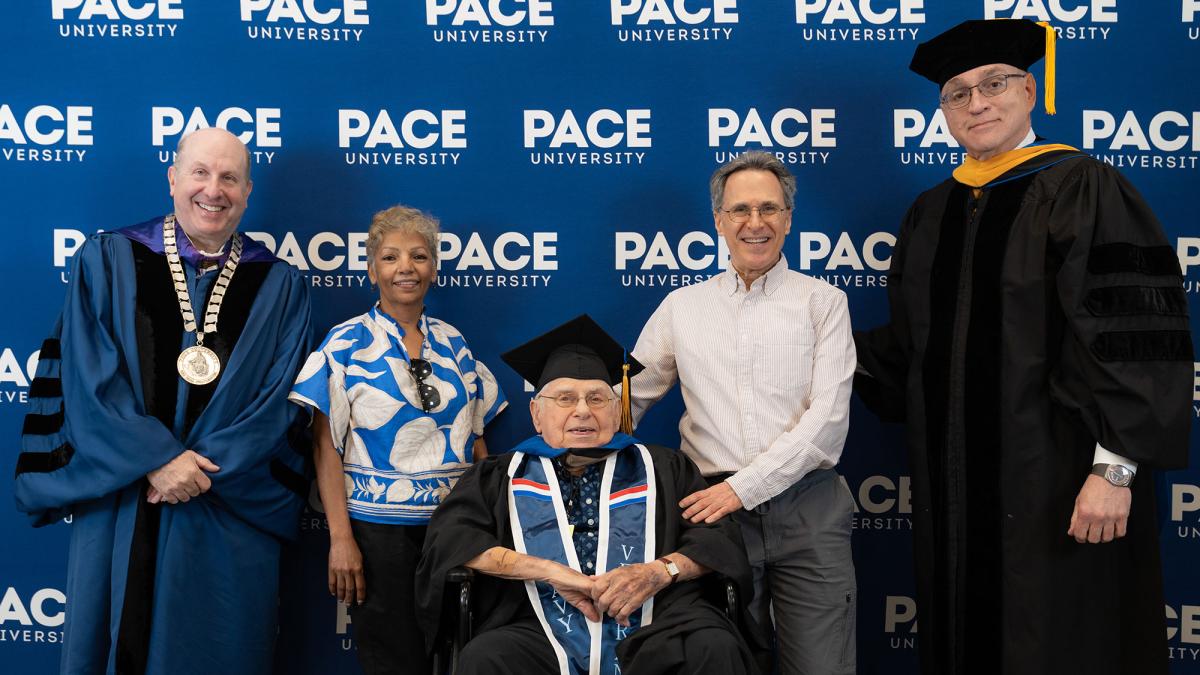
I'm grateful to Pace for graciously welcoming my participation, and to President Krislov for generously acknowledging my presence during his remarks from the stage. Concurrent with President Krislov's greeting, I was shown on the towering, overhead screens around the stadium. I was ecstatic! I cannot imagine a US Open Tennis Tournament Champion being as thrilled as me. Only minutes immediately preceding commencement, I, alongside my son, Douglas, and my eminently resourceful aide, Angela, were delighted to pose for photos with President Krislov and Dr. Jonathan Hill. Earlier this month, June 2025, I eagerly attended Pace's Golden Graduates Luncheon inside 15 Beekman Street, the newest building on Pace's Lower Manhattan campus.
I very much enjoyed meeting my fellow Pace Golden Graduates alumni, spending time with President Krislov, and learning more about Pace's storied history from esteemed University Archivist, Ellen Sowchek.
As a lifelong New Yorker, do you have a favorite place in NYC?

Growing up in the Bronx, my world was confined to predominantly 20 blocks north, 20 blocks south, 20 blocks east, 20 blocks west surrounding my family's home. While serving in the US Navy in WWII's Pacific Theater, I recall standing on the shore of New Guinea in the South Pacific, many thousands of miles from home, as an 18-years-young teenager. Gazing over the Pacific Ocean, the horizon seemed limitless.
Like many of my fellow service members who answered the call in defense of the United States of America, I eagerly traded the concrete sidewalks and comforts of home and family for the waves of the Pacific Ocean amid the uncertainty and perils of war. I grew up... fast. We all did.
I proudly served my country as a crew member aboard the USS Laurens APA153 in the Pacific as a teenager (18, 19, 20-years-young), launching amphibious assaults and combating Japanese kamikaze aircraft attacks during the Invasion of Lingayen Gulf in Northern Luzon in the Philippines and Battle of Okinawa. Evading Japanese enemy submarines while conducting island-hopping campaigns, the USS Laurens logged more than 60,000 nautical miles in WWII's Pacific Theater. We sailed from as far south as New Caledonia (east of Australia) north to New Guinea, the Mariana Islands, the Philippines, Okinawa, Pearl Harbor, then Japan (the latter for the Allied occupation following Japan's surrender), plus off of the Aleutian Islands near Alaska.
Unsurprisingly, my favorite New York City venue is the WWII US Navy aircraft carrier, USS Intrepid (CV-11), at the Intrepid Museum at Pier 86, West 46th Street on Manhattan's Hudson River waterfront. Following the noble example established by Pace, I remain persistent in my efforts to make positive and enduring contributions to society. In addition to my speaking engagements and school visits, I currently and actively volunteer at the Intrepid Museum.
While volunteering aboard the Intrepid, I share vivid anecdotes and answer questions regarding my WWII US Navy service. I also take photos with museum visitors while displaying components of my personal collection of vintage WWII artifacts—including photos, documents, etc.—spread across two tables and four easels aboard the hangar deck of the Intrepid. Almost 100-years-young, I am determined to remain active, vital and engaged while continuing to live my life purposefully. I will not allow age to define or limit me.
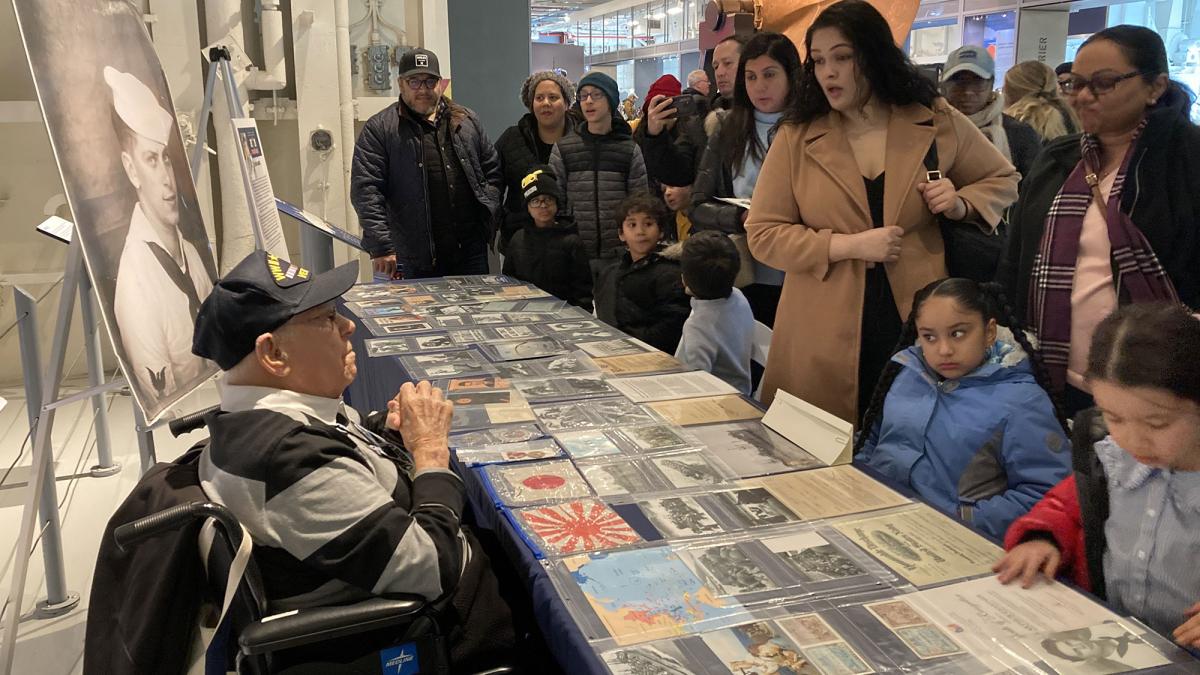
Being aboard the Intrepid invigorates me at almost 100. I feel like a gung-ho, invincible, teenage US Navy sailor back in the thick of things in WWII's Pacific Theater, eager to mix it up once again. Unlike the famed 16th century explorer, Ponce de Leon, I discover the Fountain of Youth while volunteering aboard the Intrepid.
Last month, May 2025, marked 79 years since your honorable discharge from the United States Navy, in which you served and defended our country in World War II—another remarkable milestone. What did your service in the Navy teach you about yourself and others?
My service as a teenager in the US Navy allowed me to appreciate that when we, as Americans, come together, we can accomplish anything. And we did. We won the war. My service to our nation also taught me that the most powerful weapon is a free people, unselfishly committed to a cause greater than themselves, willing to fight and die in defense of freedom. As we exclaim in the US Navy, "Non sibi sed patriae" ("Not for self, but for country"). I am proud to be an American. I am proud to have worn the cloth of this great nation while serving my country... and I am grateful to all those who have and continue to do the same. To my fellow veterans and those currently, selflessly, valiantly serving in the US Armed Forces today, as we also exclaim in the US Navy, "Bravo Zulu" ("Well Done"). "Semper Fortis" ("Always Courageous") to my fellow US Navy Veterans.
I am proud to be an American. I am proud to have worn the cloth of this great nation while serving my country... and I am grateful to all those who have and continue to do the same.
As former Secretary of the Navy Carlos Del Toro graciously remarked about me during his keynote address during the Chairmen's Dinner in NYC's Times Square District on the eve of the commissioning ceremony for the US Navy's USS Cooperstown (LCS-23), I remain as passionate about today's Navy as I was when I wore the uniform and served during WWII. For example, as I do annually, I again participated in the New York City Veterans Day Parade last November. Veterans Day 2024 was my equivalent of a high school athlete's “National Signing Day.” Producers of the parade at the United War Veterans Council, as well as WABC-TV, Channel 7, and the US Navy requested that I participate in a live interview alongside US Navy Rear Admiral Carl Lahti during WABC-TV's live broadcast of the parade.
During the live interview, I humorously made Rear Admiral Lahti "an offer he couldn't refuse.” I proposed to rejoin the US Navy, provided that I, the US Navy’s “newest/youngest-at-heart recruit,” be assigned a top rack (bunk) for my sleeping accommodations aboard a US Navy ship. Rear Admiral Lahti enthusiastically responded to WABC-TV's Lucy Yang, "We'll take him back. We'll take him back today."
To this day, you work dutifully as a living historian, speaking to others – especially students – about World War II, your service, and the experiences and lessons you took with you from that time. What drives you to continue sharing your story?
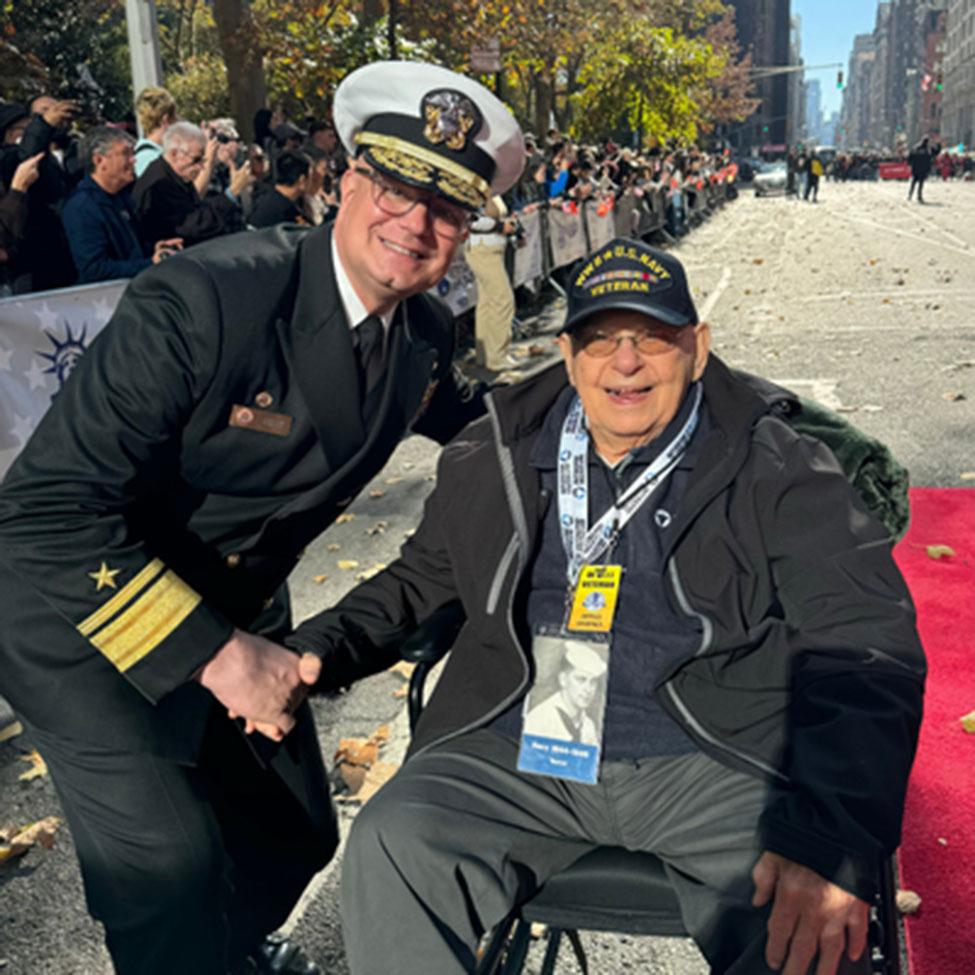
80 years following the Allied Victory in WWII in 1945, I continue to serve by visiting students enrolled in elementary, middle, high school, universities, federal service academies, senior military colleges, ROTC programs throughout the USA and abroad while enthusiastically sharing enduring lessons I learned about courage, perseverance, honor, freedom, patriotism.
With the hope that the horrific, genocidal perils of the WWII era may never resurface, I eagerly meet with, speak to, and invest time in younger generations. To honor my fellow service members who, like me, wore the uniform of the US Armed Forces during WWII and to help preserve their legacy, particularly those who were killed or wounded, I continue to dedicate myself to educating students about their courageous service and selfless sacrifices.
I describe the cost of defending the United States of America to students as follows. The largest funeral I have ever and will ever attend occurred on April 2, 1945, during the brutal Battle of Okinawa. Wearing my dress white US Navy uniform, I stood at attention and saluted while on the top deck of my ship, USS Laurens APA153. As the bugler blew taps, my fellow US Navy sailors, killed in action during Japanese kamikaze suicide aircraft attacks on our task unit of US Navy ships earlier the same day, were buried at sea. The remains of each sailor who made the ultimate sacrifice, inside a weighted canvas bag covered with the American flag, was slid into the watery grave of the Pacific Ocean.
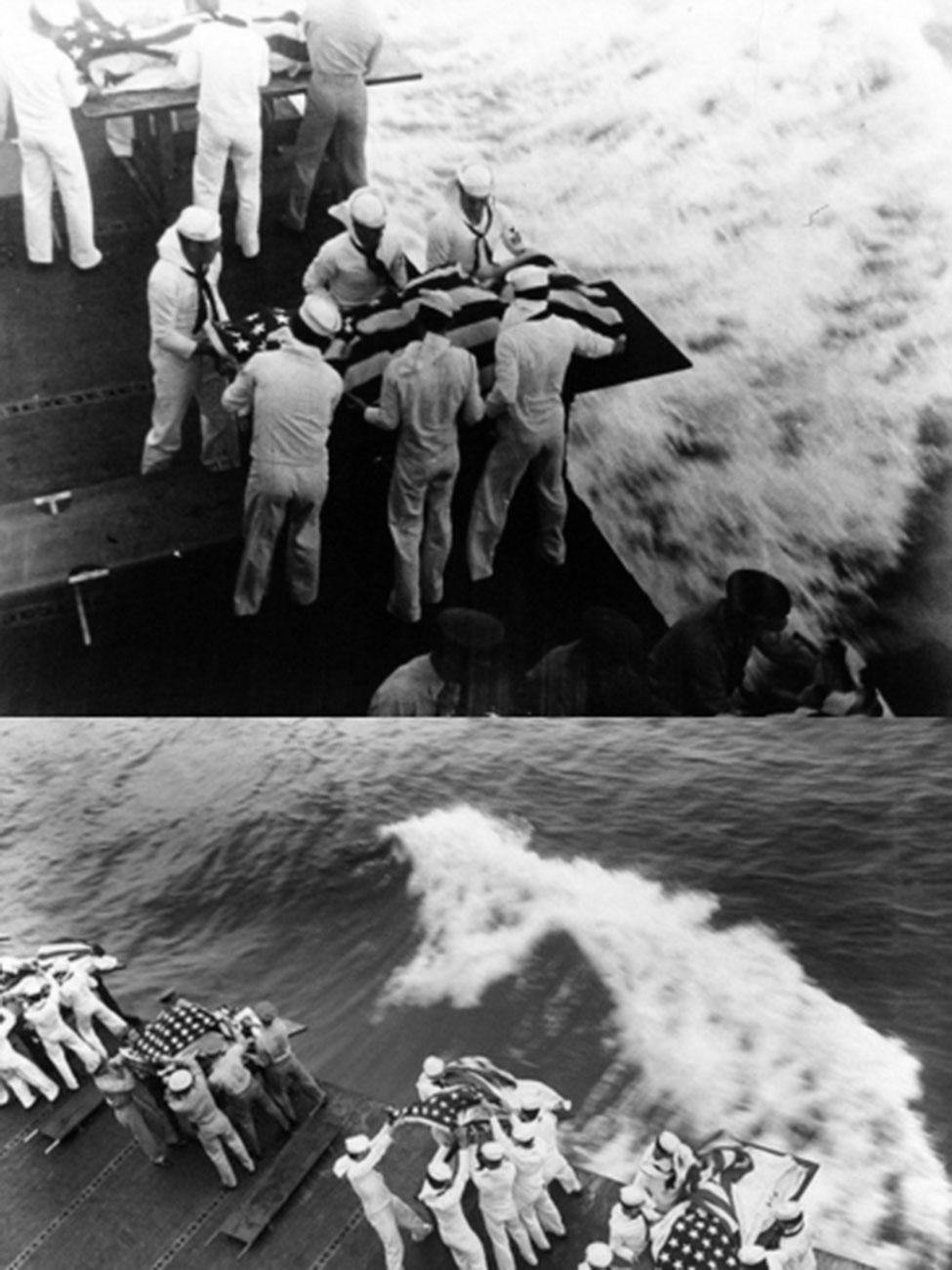
As I reflected upon my fellow sailors' fate, I thought of their families back home in the States, their mothers, fathers, brothers, sisters. None would have a grave with a stone to visit and grieve over. Maybe they would be given their son's, brother's, husband's dog tags if they were not lost amid the wreckage or destroyed in the fire of the kamikaze attacks.
I strive to impress upon young generations that those with whom I served, those who rendered the last, full measure of devotion to our nation, sacrificed two lives: The life they were living before being killed in action, and the life they sacrificed in a commitment to a cause greater than themselves—returning home to a loving family and grateful nation, gaining an education, cultivating a profession, experiencing the blessings of being a husband, father, grandfather, great-grandfather, elderly man.
I have experienced and enjoyed these blessings. Therefore, it is my duty to honor them while preserving their legacy of service, sacrifice, and valor.
As an Authentic Living Historian, how do you hope to influence the study and awareness of World War II?
As an Authentic Living Historian, I am adamantly opposed to having young generations rely exclusively on impersonal textbooks, videos, films, and Zoom sessions to learn history. Consequently, I remain dedicated to enabling young students the unique opportunity to meet, converse face-to-face with, and ask questions directly of a WWII US Navy Veteran. According to research performed by the US Dept. of Veterans Affairs, of the 16.4 million Americans who served in the US Armed Forces during WWII, only approximately 61,000 (little more than 1/3 of 1%) of these American Heroes, National Treasures, sources of immense national pride, are estimated to remain with us. Considering only WWII US Navy veterans such as myself, the number still living is the equivalent of a mathematical rounding error. The physical link to the generation that saved people, nations, perhaps the world, is rapidly diminishing. Sadly, it won't be long before all we have left are museums, history books, photographs, television interviews, oral histories and films.
Now, 80 years following the Allied Victory in WWII in 1945, the opportunity to meet a service member in the greatest conflict in recorded human history is fast fleeting. For many Americans, the next time they meet a WWII veteran may be the last time they meet a WWII veteran.
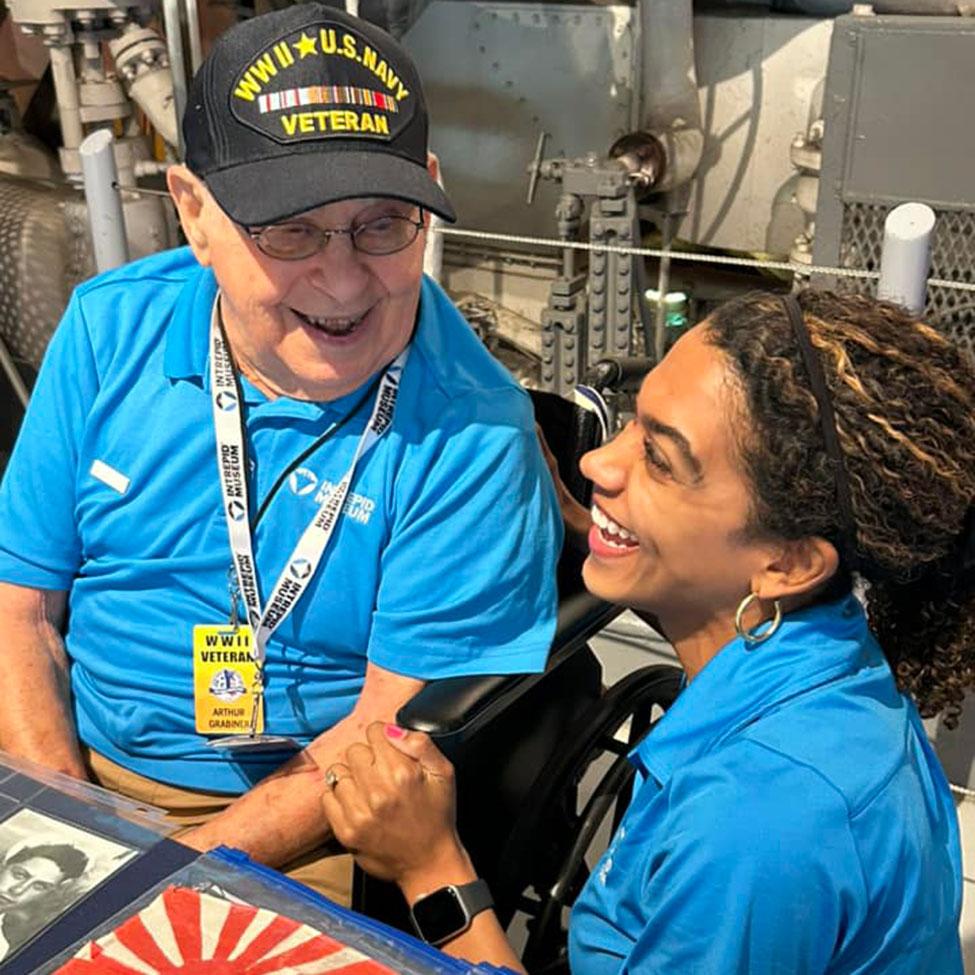
My purpose in volunteering aboard the Intrepid Museum at almost 100-years-young aligns with the museum's mission to "promote the awareness and understanding of history...and service...in order to honor our heroes, educate the public and inspire future generations.” Imagine the delight of a young student, excitedly visiting a WWII US Navy aircraft carrier and, unexpectedly, being greeted by one of the last remaining WWII US Navy Veterans. Now, imagine, this amazed young student listening intently as I provide my firsthand, vivid description of my shipmates and I aboard the USS Laurens (APA153), launching an amphibious invasion of an island occupied and defended by the Japanese military, our evading Japanese enemy submarines, our encounters combating Japanese kamikaze suicide aircraft attacks, and our resultant participation in the US Navy burial at sea. That young student may be inspired to pursue further study of WWII and, subsequently, enlist in the US Navy.
By educating young generations, I strive to remedy the historical illiteracy concerning WWII in the Pacific Theater.
Too often, my fellow WWII Veterans of the Pacific Theater and I are disheartened when students confess that they were unaware WWII was also waged in the Pacific. Too many mistakenly believe that WWII was exclusive to the European Theater. Furthermore, I emphatically articulate that I will not refer to 1945, nor May 8, 1945, neither September 2, 1945, as the "end" of WWII, nor the "end" of WWII in Europe, nor the "end" of WWII in the Pacific, respectively. Instead, I declare that I will characterize the forementioned three milestones as the "Allied Victory". I reason that the Allies and the Axis Powers did not "play to a tie.” President Franklin Delano Roosevelt, my first Commander-in-Chief, punctuated his "Day of Infamy" address 24 hours following the Japanese attack on Pearl Harbor as follows: "No matter how long it may take us to overcome this premeditated invasion, the American people in their righteous might will win through to absolute victory."
Furthermore, I remind listeners that Prime Minister of the United Kingdom during WWII, Winston Churchill, did not contort his fingers to resemble the letter "E". Instead, Churchill raised and parted his index and middle fingers to illustrate the letter "V" for "Victory."
By educating young generations, I strive to remedy the historical illiteracy concerning WWII in the Pacific Theater.
When you look back on your extraordinary life, what are you proudest of? What have been the keys to your successes, and how have you navigated failure?
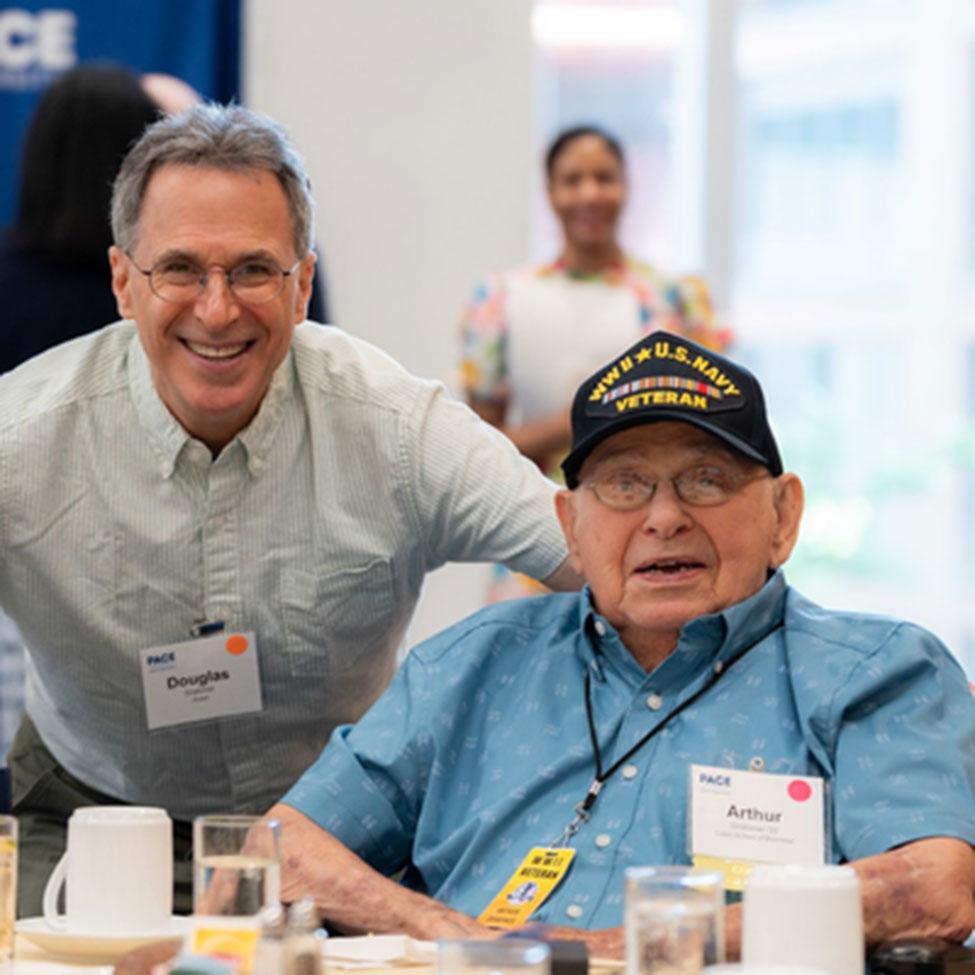
In the twilight of my life, the proudest and most enduring components of my legacy are, of course, my children, grandchildren, great-grandchildren. I hope that I have been a positive influence on them.
I'm heartened when my youngest son, Douglas, proudly proclaims, "Most children never meet their hero. I'm extraordinarily blessed to have been raised, inspired, and unconditionally loved by my hero, my Dad, Arthur. Every day is Father's Day. Every day is Veterans Day." I'm blessed. My cup runneth over.
My commitment to causes greater than myself, including my enthusiasm for educating and inspiring young generations as a current volunteer aboard the Intrepid Museum, as well as during school visits locally, domestically, and abroad – such as I did in Manila, Philippines this past February 2025 – I hope instructs people everywhere of all generations that old age is not an obstacle to remaining relevant, but rather an opportunity to share a modern ager's experience and wisdom. By exuberantly sharing the enduring lessons I learned about courage, perseverance, honor, freedom, and patriotism, I hope to demonstrate that modern agers are not dispensable, but, instead, essential.
To motivate myself, I reason that Abraham (of the Old Testament) lived to 175 years of age. At 99-years-young, months shy of my 100th birthday, I am therefore middle-aged, I tell myself. My mantra has become "roll with the rhythm of the world.” In other words, getting aggravated only gets you aggravated. So, why bother?
What is one piece of advice you would give to recent Pace graduates?
Congratulations on your milestone achievement and welcome to the close-knit family of proud Pace alumni. As we exclaim in the US Navy, "Anchors Aweigh.”
Regarding advice, I will invoke the words and wisdom of Mark Twain: "Go out on a limb, that's where the fruit is."
By exuberantly sharing the enduring lessons I learned about courage, perseverance, honor, freedom, and patriotism, I hope to demonstrate that modern agers are not dispensable, but, instead, essential.
Pride and Purpose: Sav Ackerman ’25
Sav Ackerman ’25 has always had a strong work ethic. Born into an abusive and impoverished upbringing, both of Sav’s parents passed away by the time Sav was 15 years old. “There were many hard days growing up,” shared Sav. “Prior to passing away, my mother was a single parent and worked full-time while going to school for nursing. I started working to support myself from the time I was 15 and continued to work throughout law school.”
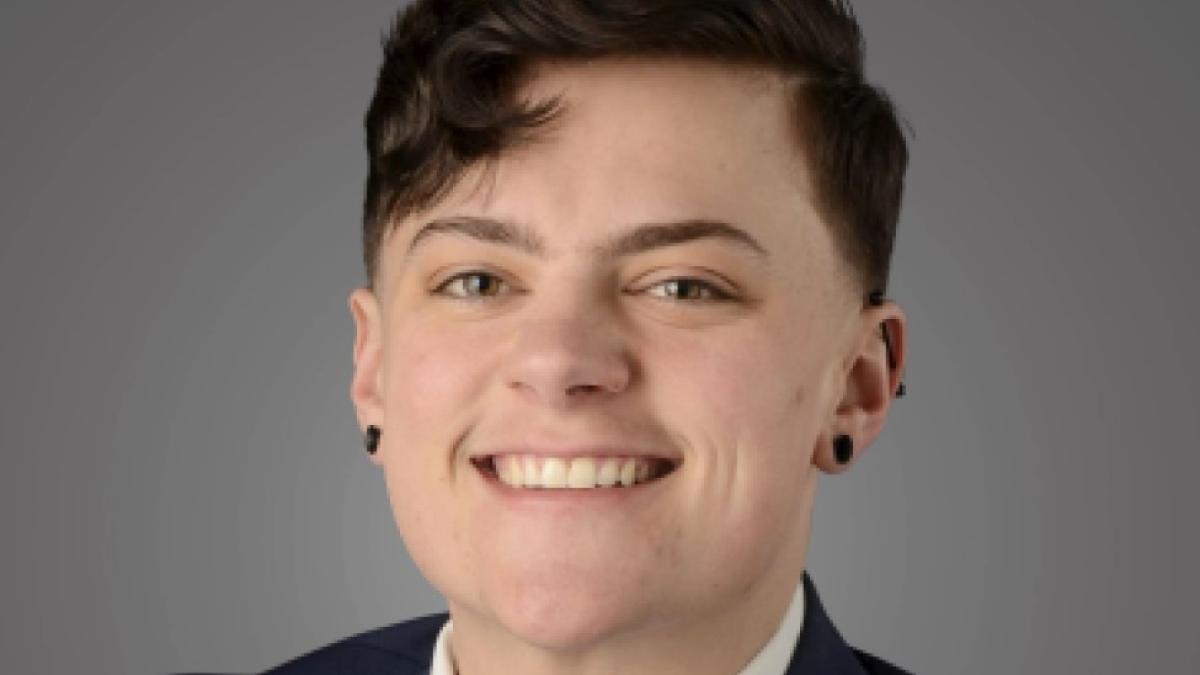
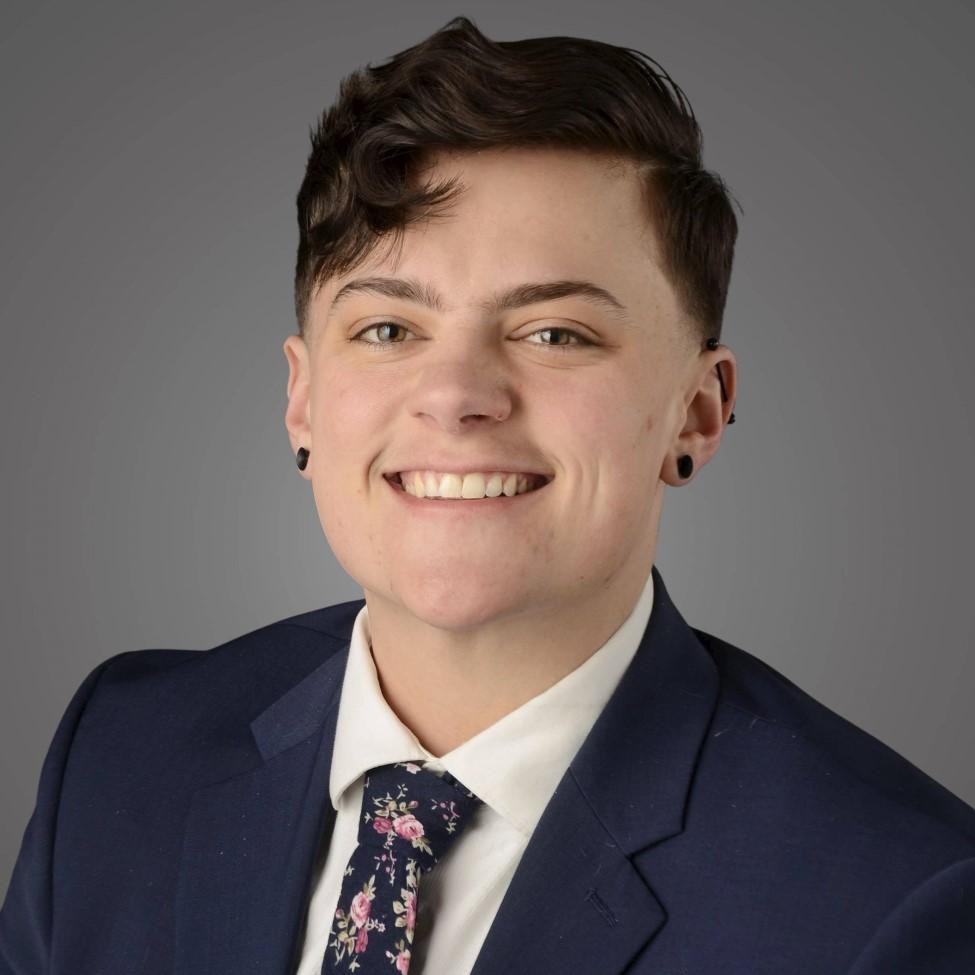
Sav Ackerman ’25 has always had a strong work ethic. Born into an abusive and impoverished upbringing, both of Sav’s parents passed away by the time Sav was 15 years old. “There were many hard days growing up,” shared Sav. “Prior to passing away, my mother was a single parent and worked full-time while going to school for nursing. I started working to support myself from the time I was 15 and continued to work throughout law school.”
It was the Elisabeth Haub School of Law at Pace University's FLEX JD Scheduling Option that attracted Sav the most. “The FLEX JD program fit my schedule perfectly,” said Sav. “It allowed me to continue working without overwhelming my already busy schedule while also providing me with the ideal amount of academic intensity I needed.” Once they started at Pace Haub Law, Sav found the Law School atmosphere extremely communal in nature. “Everyone wants one another to succeed. The connections I made – professors, fellow students, administrators – all allowed me to deepen my understanding of the law and how to be a successful advocate.”
Sav recalls Adjunct Professor Stefen Short as one of the most remarkable individuals they met while studying at the Law School. “Professor Short introduced the topic of incarcerated peoples' rights to me as a student after my summer of working at The Legal Aid Society of Westchester, and illuminated a field of lawyering I didn't know was reachable,” shared Sav. “He inspired me with a different way of thinking when approaching advocacy that I will never forget.”
While Sav was at Pace Haub Law, they were the FLEX Representative for Lambda Law Students. They launched the innovative and impactful Name Change Clinic at Cubbyhole Bar in New York City. “This initiative was very important to me,” shared Sav. “I, along with other Pace Haub Law Lambda Law Students, handed out paperwork and information to allow individuals to change their legal name in New York State. Being able to see this initiative become a reality and take it into New York City at a landmark LGBTQ+ space, like Cubbyhole, was amazing.” While Sav was a law student, they also co-founded the LAMBDA LGBTQIA+ Judge Mentorship Program, where LGBTQIA+ judges across the state of New York assist in mentoring law students at the Law School.
Today, Sav is studying for the bar exam and working as a law graduate with The Legal Aid Society of New York City. “I hope to continue to learn and expand my advocacy for minority communities and indigent clients so that their voices may be heard,” said Sav.
In their spare time, Sav pursues music as an outlet. “I am a musician and continue to play guitar, drums, and piano. I love creating lyrics and music that allows me to feel!” As far as words of advice, Sav encourages current and future law students to remember why you started your law school journey, but to also open your arms to changing and learning within the field. “Don't be afraid to evolve and never give up.”
Westchester Columbian Lawyers Association Honors Dean for Students Angie D’Agostino with Honorable Richard J. Daronco Distinguished Service Award
Angie D’Agostino, Dean for Student and Campus Affairs at the Elisabeth Haub School of Law at Pace University, was honored with the Honorable Richard J. Daronco Distinguished Service Award by the Columbian Lawyers Association of Westchester County at the organization’s annual dinner on June 13, 2025. The prestigious award recognizes individuals of Italian heritage who have made significant contributions to the bench or bar and who exemplify service, leadership, and a deep commitment to community.
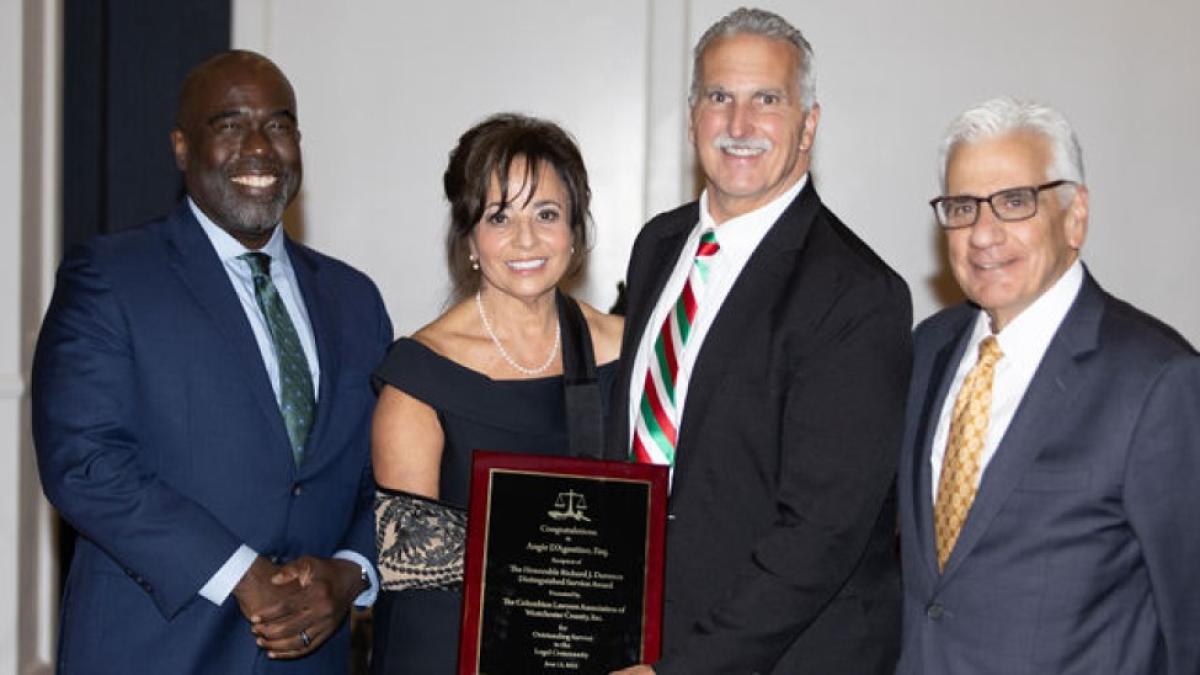
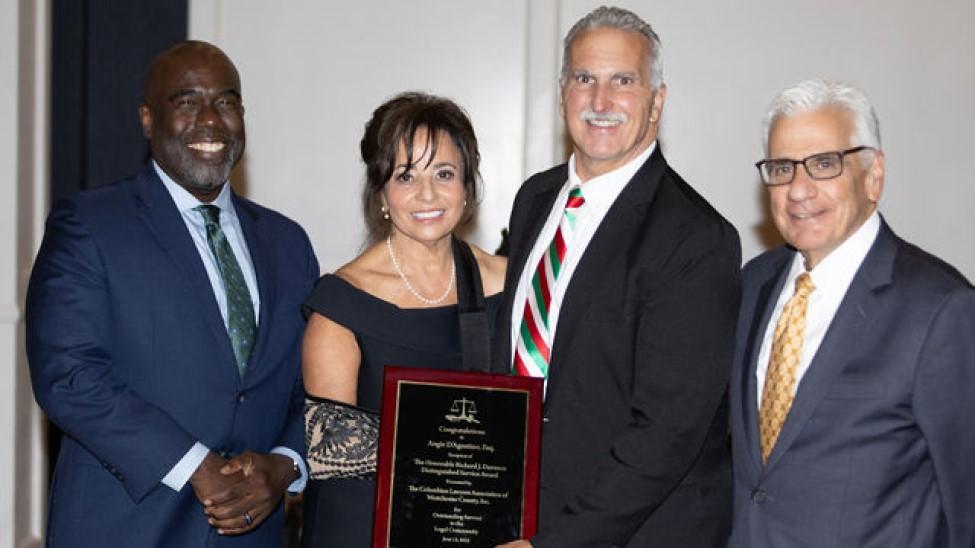
Angie D’Agostino, Dean for Student and Campus Affairs at the Elisabeth Haub School of Law at Pace University, was honored with the Honorable Richard J. Daronco Distinguished Service Award by the Columbian Lawyers Association of Westchester County at the organization’s annual dinner on June 13, 2025. The prestigious award recognizes individuals of Italian heritage who have made significant contributions to the bench or bar and who exemplify service, leadership, and a deep commitment to community.
The Honorable Richard J. Daronco Distinguished Service Award is named in memory of the former Justice of the Supreme Court of Westchester County and later the United States District Court for the Southern District of New York, and celebrates his legacy of integrity, compassion, and dedication to justice. Past recipients include the Honorable Janet DiFiore, Chief Judge of the State of New York and the Court of Appeals; Carl A. Vergari, former Westchester County District Attorney; the Honorable Mario Cuomo, former Governor of New York; and the Honorable Francis A. Nicolai, former Chief Administrative Judge for the Ninth Judicial District, among other distinguished Italian-American jurists and attorneys.
Dean D’Agostino’s career at the Elisabeth Haub School of Law at Pace University spans nearly 40 years. She began as an assistant in the Office of Admissions and rose steadily through the ranks, ultimately serving as Dean of Admissions and Student Affairs. During that time, she admitted and guided hundreds of law students, shaping their academic journeys through scholarships, mentorship, and unwavering support. In 1999, while working full-time, she earned her law degree from what was then Pace Law School, and in 2000 was appointed Dean for Students—a role she has held ever since with steadfast dedication, compassion, and purpose.
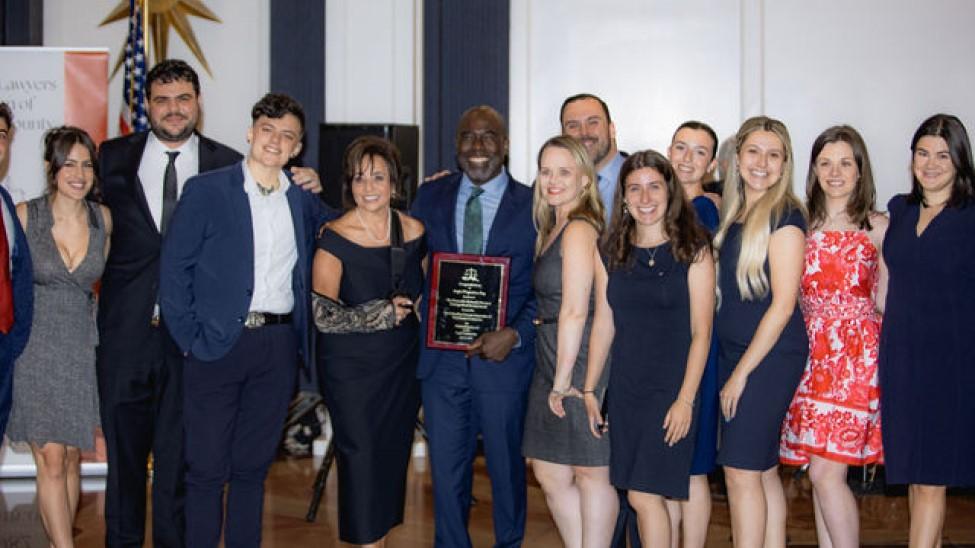
Affectionately known as “Dean D” by generations of students and alumni—many of whom now call her a friend and colleague—she has cultivated a culture of community at Pace Haub Law. Under her leadership, the Law School has expanded its mental health and wellness programs, providing critical resources to students during some of the most challenging times in their academic and personal lives.
The award was presented by Hon. Daniel Angiolillo, who praised Dean D’Agostino’s deep commitment to “Family, Faith, and Pace.” In his remarks, Horace E. Anderson Jr., Dean of the Elisabeth Haub School of Law, reflected on the many lives she has touched over her decades of service.
“Dean D’s impact extends far beyond the walls of the law school. For nearly 40 years, she has been a guiding force in the lives of thousands of law students—many of whom are now legal professionals in our community,” said Dean Anderson. “Her care, encouragement, and willingness to step in during some of the most difficult moments in a student’s life have made all the difference. There are countless attorneys today who would not be where they are without her.”
I’ve been blessed to serve at an institution where Opportunitas—the opportunity for first-generation students to rise—has mirrored both my personal journey and my cultural heritage.
—Dean Angie D'Agostino
During her heartfelt remarks, Dean D’Agostino spoke about her journey from humble beginnings, the transformative power of education, and the responsibility that legal educators carry as gatekeepers of the profession—one she has approached with deep seriousness and care.
“I’ve been blessed to serve at an institution where Opportunitas—the opportunity for first-generation students to rise—has mirrored both my personal journey and my cultural heritage,” she shared.
Dean D’Agostino has been a long-standing, involved member of the Columbian Lawyers Association, which has been a generous partner to the Law School, supporting many deserving law students through its scholarship program.













